Round garden beds offer endless possibilities for creating stunning focal points that maximize growing space while adding organic beauty to any landscape. These circular designs eliminate wasted corner space, provide better drainage, and create natural microclimates for diverse plantings. Whether you're working with a small urban plot or expansive backyard, circular beds can accommodate everything from herbs and vegetables to flowers and ornamental displays. The curved shape feels more natural than rigid rectangles, creating flowing movement that guides the eye and encourages exploration. From permaculture-inspired spirals to zen meditation spaces, round garden beds transform ordinary growing areas into extraordinary garden features that serve both practical and aesthetic purposes.
1. Herb Spiral Garden Bed with Permaculture Design
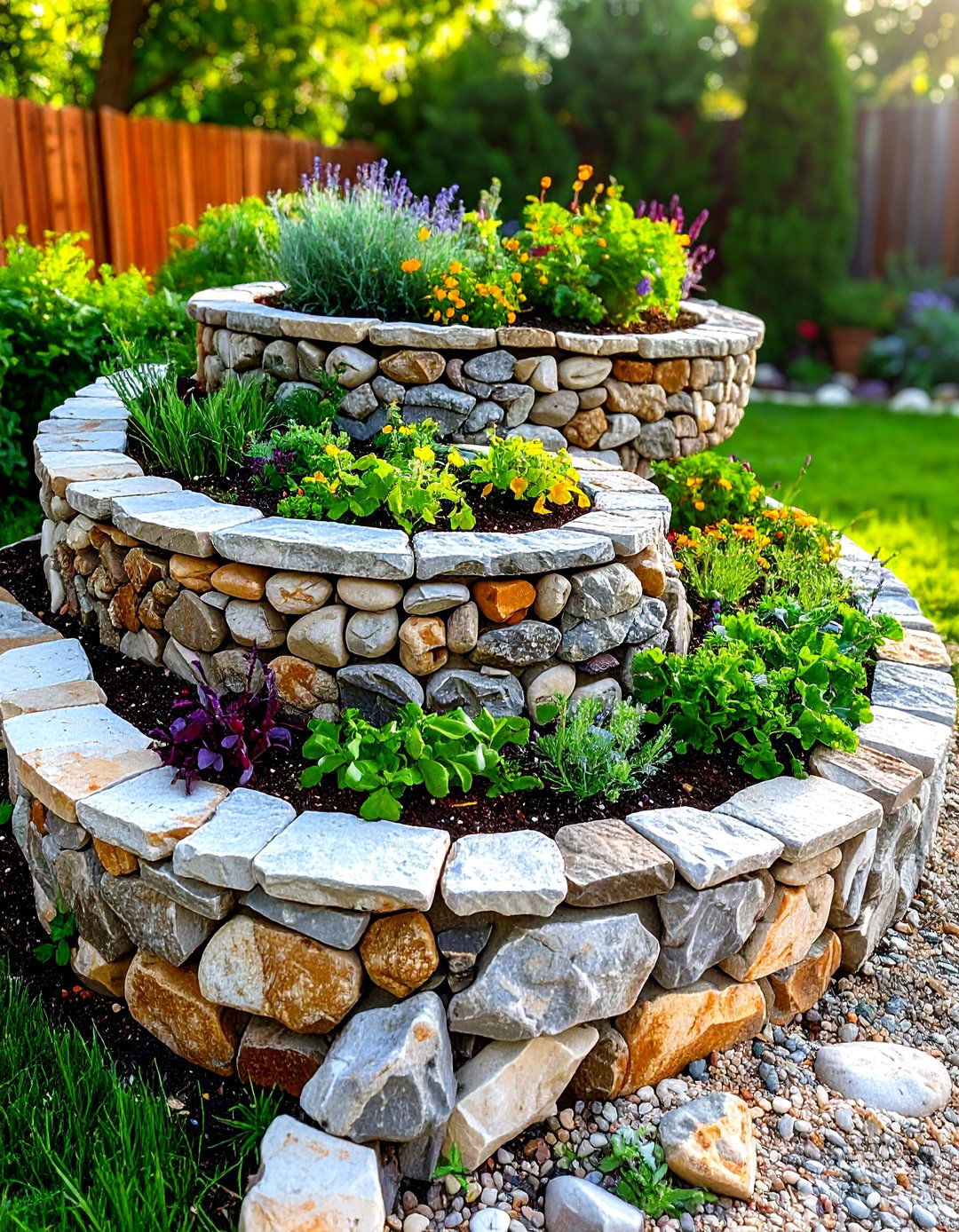
The herb spiral represents the ultimate space-efficient round garden bed, incorporating permaculture principles to create multiple microclimates within a single circular structure. This raised spiral design starts low at the outer edge and curves upward to a central peak, typically reaching two to three feet high. The varying heights create different moisture and sun exposure zones, allowing Mediterranean herbs like rosemary and thyme to thrive at the sunny, well-drained top while moisture-loving herbs like parsley and chives flourish in the lower, shadier areas. Built with natural stone, brick, or timber, the spiral can accommodate twenty or more herb varieties in just a six-foot diameter space. Water applied at the top naturally flows down to irrigate the entire bed, making maintenance simple and efficient.
2. Raised Circular Vegetable Garden Bed with Cedar Framework
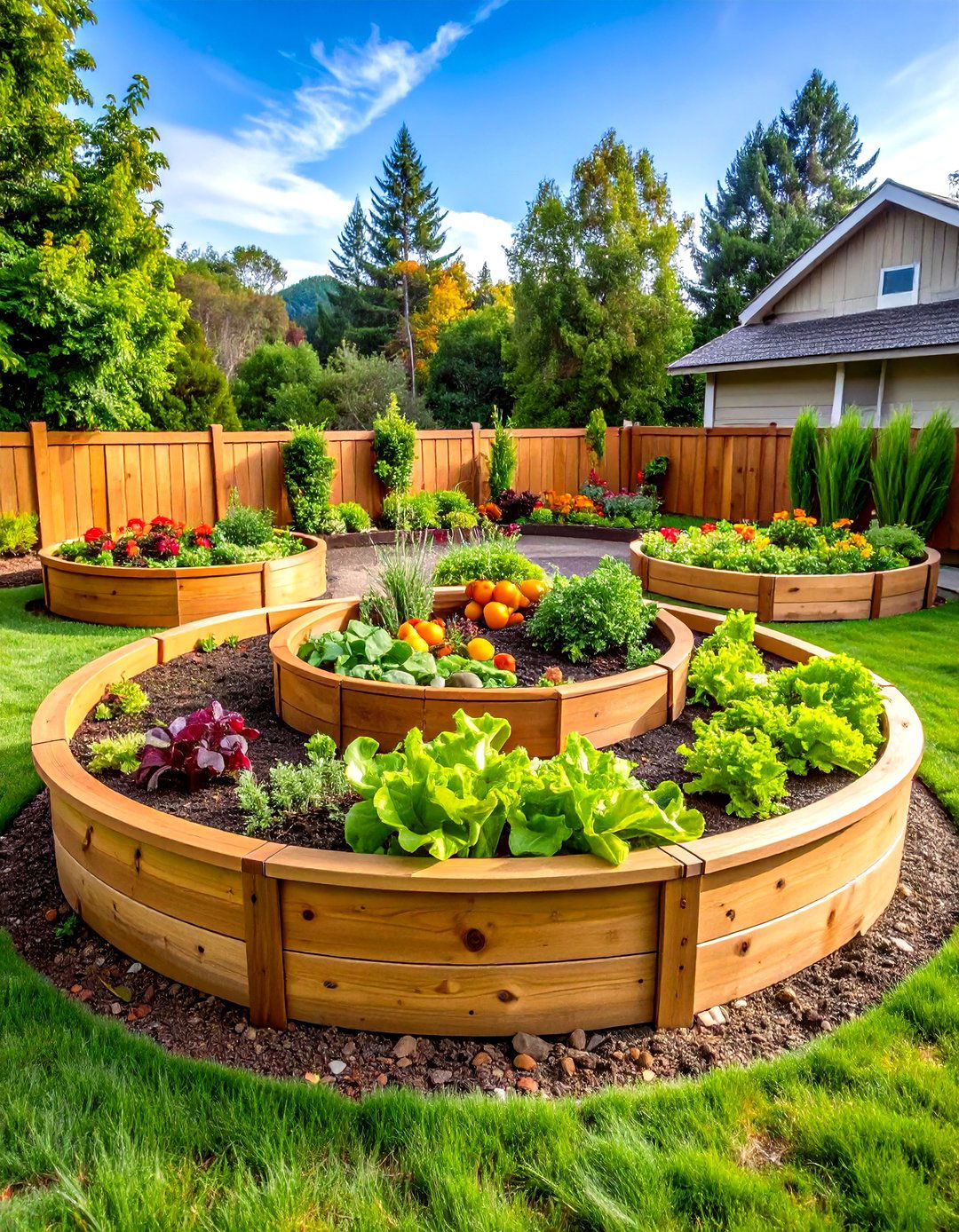
A classic raised circular vegetable bed constructed from rot-resistant cedar boards creates an elegant and productive growing space. The curved design requires specially cut lumber at precise angles to form a perfect circle, typically four to six feet in diameter and twelve to eighteen inches high. This design maximizes growing area while maintaining easy access from all sides, perfect for intensive vegetable production using square-foot gardening methods. The cedar framework provides natural pest resistance and weathers to an attractive silvery-gray patina over time. Deep, fertile soil allows for excellent root development, while the raised height improves drainage and soil warming for earlier spring planting. Companion planting arrangements work beautifully in the circular format, creating visual appeal alongside practical growing benefits.
3. Stone Circle Garden Bed with Naturalistic Rock Border
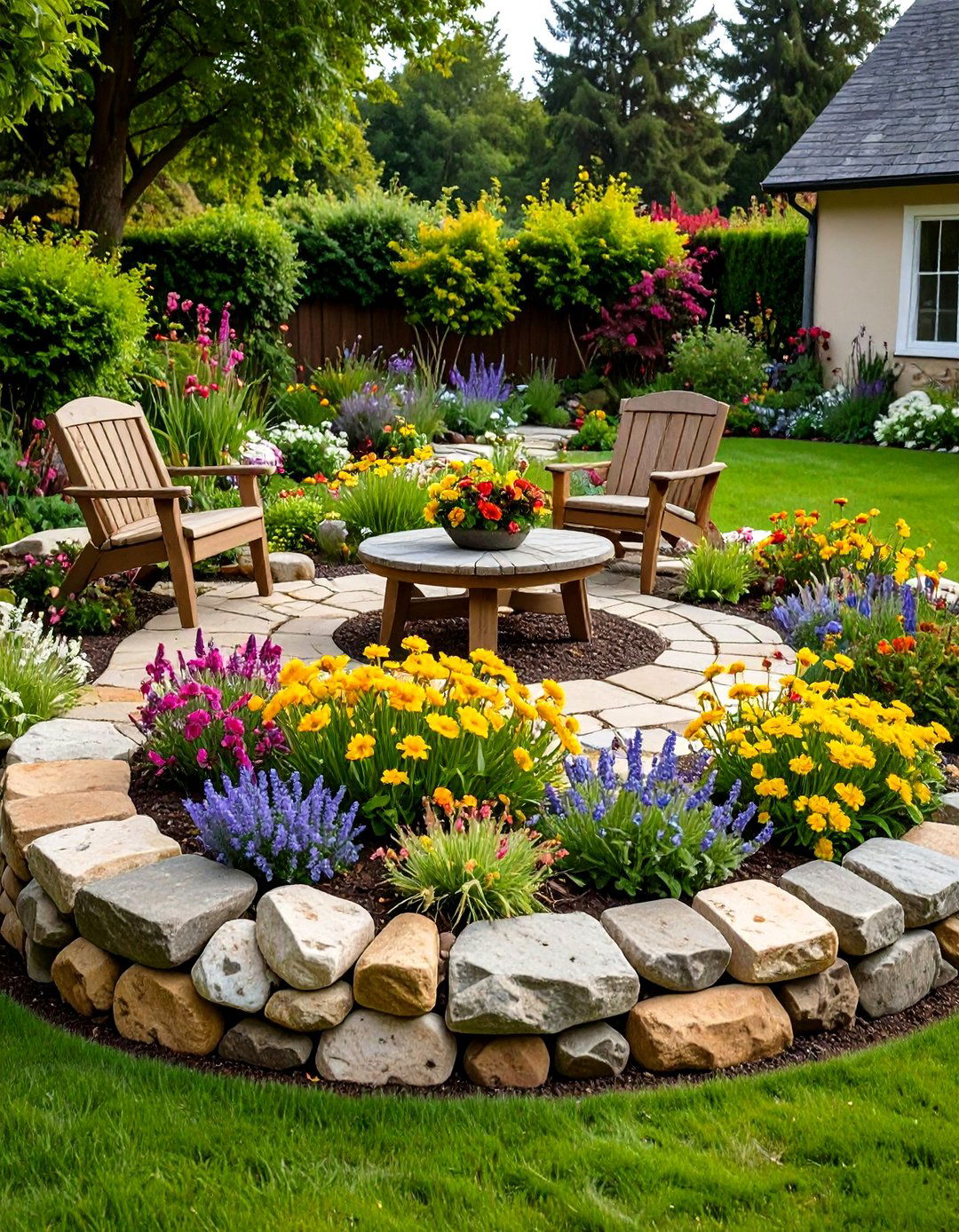
Natural fieldstone creates a timeless circular garden bed that blends seamlessly with landscape architecture. Large, flat stones are dry-stacked without mortar to form a rustic border eighteen to twenty-four inches high, allowing for natural drainage between gaps. The irregular stone shapes create visual texture while providing thermal mass that moderates soil temperature fluctuations. This design works perfectly for perennial flower displays, ornamental grasses, or drought-tolerant plant collections. The stone border creates defined planting areas while serving as casual seating for garden maintenance and enjoyment. Weathered limestone, sandstone, or regional fieldstone options allow the design to complement existing landscape features. The natural appearance makes this bed style particularly suitable for cottage gardens, prairie landscapes, or informal country settings.
4. Keyhole Garden Bed with Central Compost System

The traditional keyhole design combines circular efficiency with integrated composting, creating a self-sustaining growing system within a six-foot diameter space. A narrow pathway extends into the center of the circle, providing access to a central composting basket made from wire mesh or wooden slats. Kitchen scraps and garden waste decompose in the center while nutrients gradually feed surrounding plants through natural soil organisms. The bed slopes gently toward the center to direct water and nutrients outward to planted areas. This African-inspired design maximizes growing space while minimizing water requirements and external fertilizer inputs. Vegetables, herbs, and flowers all thrive in this system, making it ideal for sustainable food production in small spaces or drought-prone regions.
5. Brick Circle Garden Bed with Formal Victorian Style
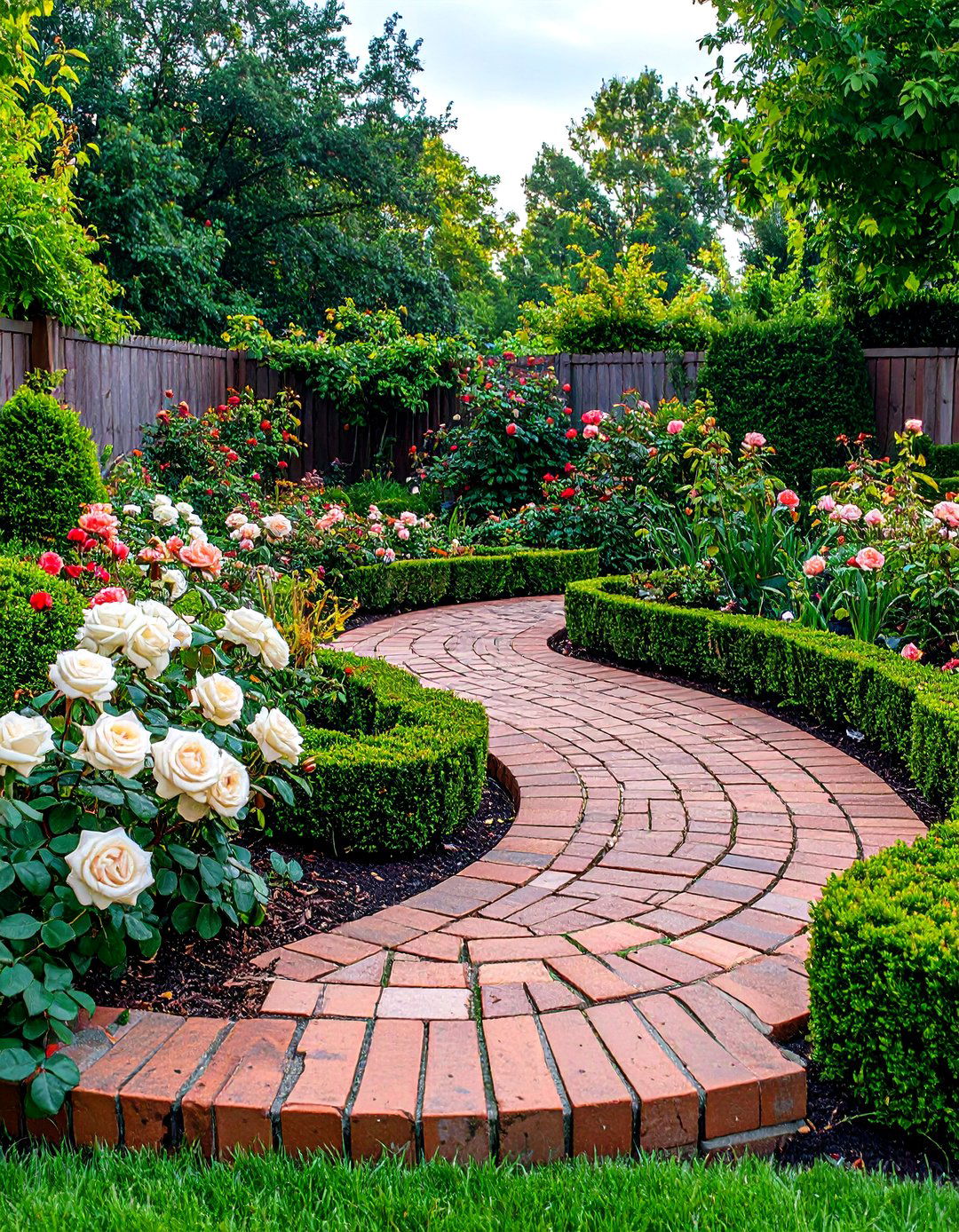
A formal circular bed constructed from traditional clay bricks creates elegant structure perfect for Victorian-inspired garden designs. Multiple courses of bricks are mortared together to form a precise eighteen to twenty-four inch high border, often topped with decorative coping stones for a finished appearance. The warm terracotta color of aged bricks complements both heritage and modern home styles while providing excellent thermal mass for plant protection. This design works beautifully for formal flower displays featuring roses, boxwood hedging, or seasonal bedding plants arranged in geometric patterns. The brick construction offers exceptional durability and requires minimal maintenance beyond occasional repointing. Antique reclaimed bricks add character and history, while new engineering bricks provide consistent color and weather resistance for contemporary applications.
6. Galvanized Steel Ring Garden Bed with Modern Industrial Appeal
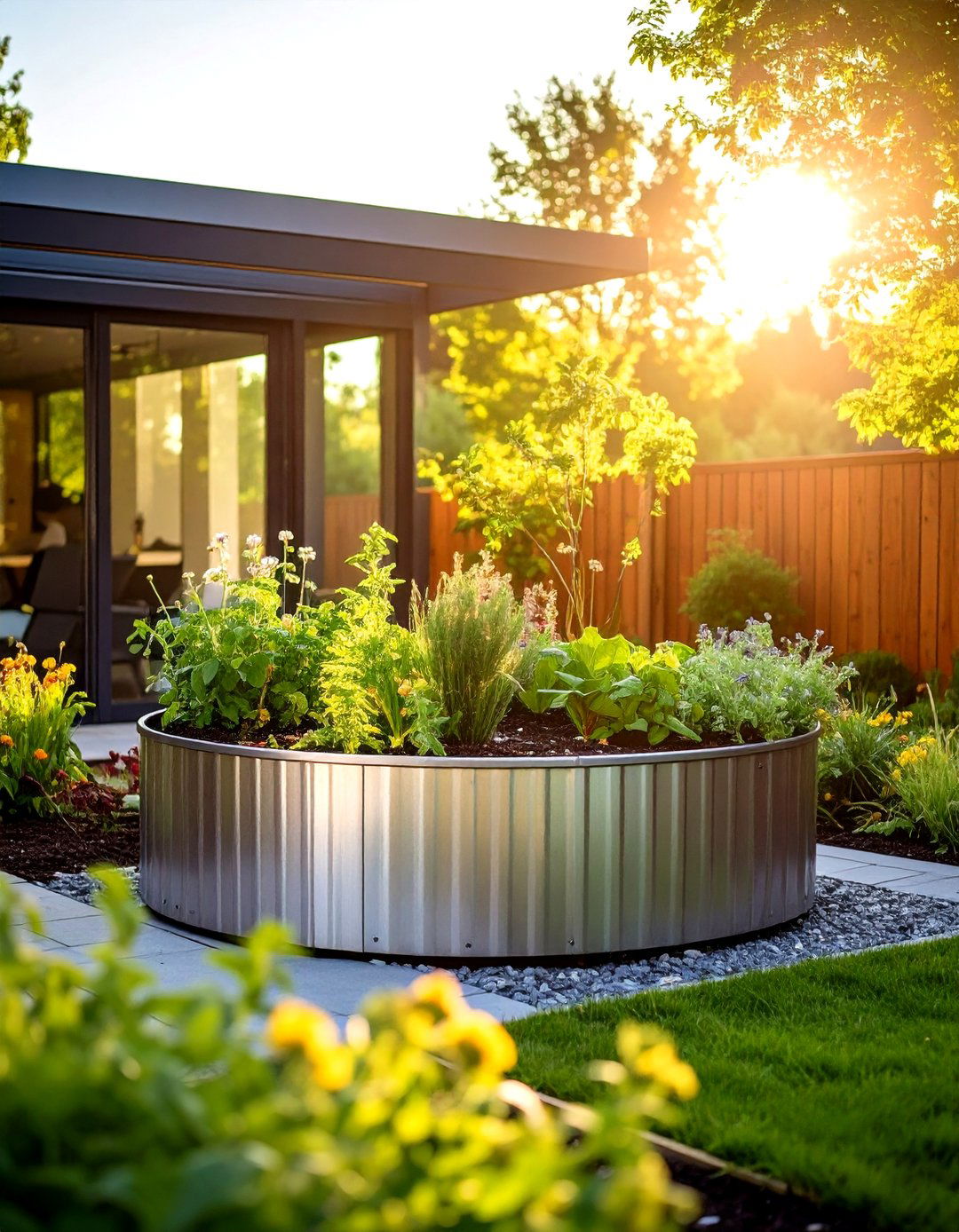
Sleek galvanized steel rings create contemporary circular beds that suit modern landscape designs perfectly. These prefabricated metal bands, typically twelve to eighteen inches high, form precise circles in various diameters while requiring minimal installation effort. The silver finish complements architectural elements like concrete patios, steel pergolas, or contemporary home exteriors. Corrugated metal panels can be formed into curves for custom dimensions, while flat steel bands offer clean, minimalist lines. The metal construction provides excellent durability against weather and soil moisture while reflecting heat to benefit heat-loving plants like peppers and tomatoes. This design works particularly well for urban gardens, rooftop installations, or as accent features in geometric landscape compositions where sharp, defined edges create striking visual contrast.
7. Timber Log Circle Garden Bed with Rustic Woodland Character
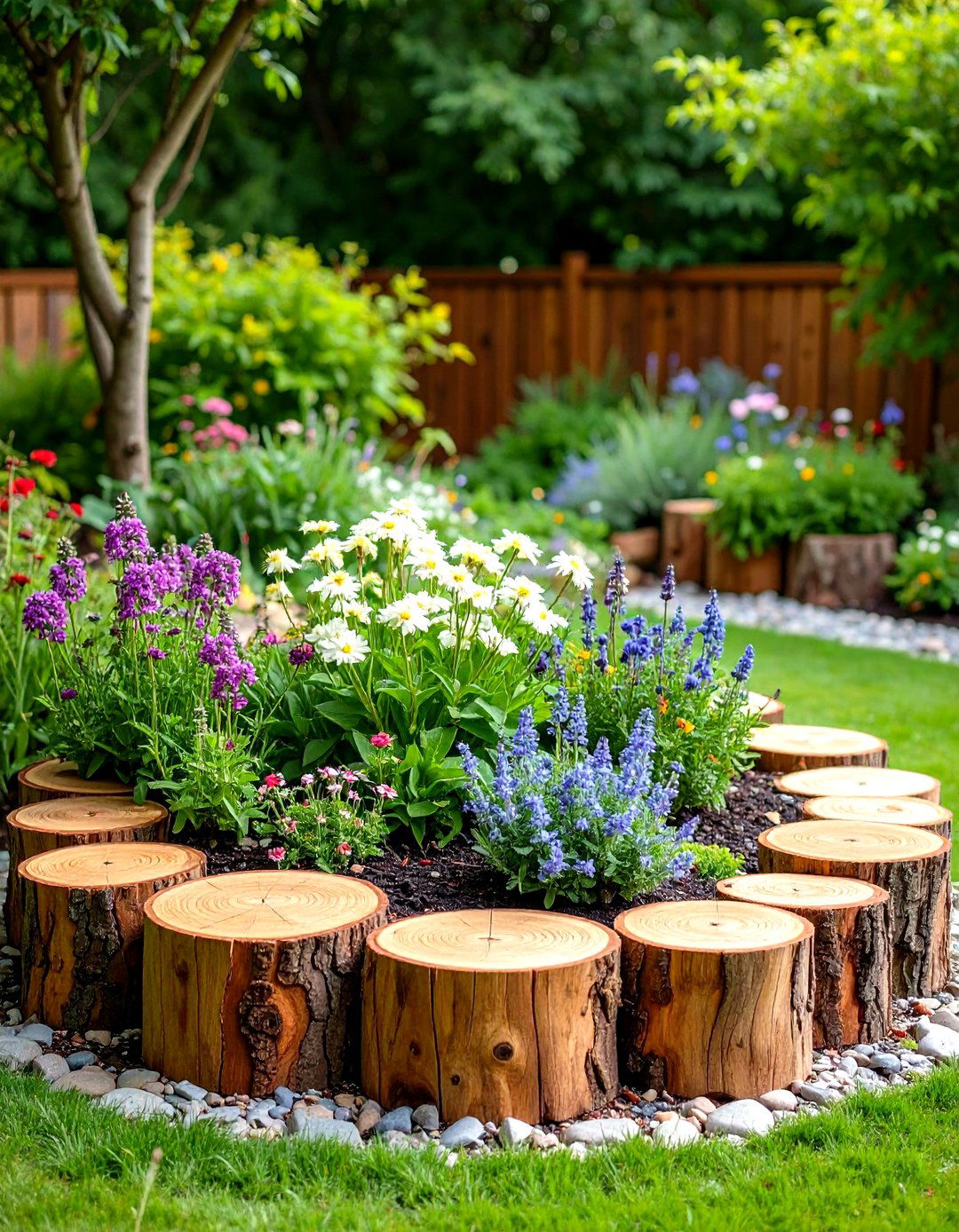
Natural timber logs arranged in circular formation create charming rustic garden beds perfect for woodland or cottage garden settings. Cedar, oak, or pressure-treated pine logs are partially buried and stacked two to three courses high, creating organic curves that complement natural landscapes. The varying log diameters and natural wood grain provide textural interest while aging to attractive weathered tones over time. This construction method works beautifully for shade gardens, wildflower meadows, or herb collections that benefit from the woodland aesthetic. Logs can be sourced locally or salvaged from tree removal projects, making this an economical and environmentally friendly option. The rustic appearance suits informal garden styles where natural materials take precedence over formal geometric precision.
8. Mandala Garden Design with Multiple Connected Circles
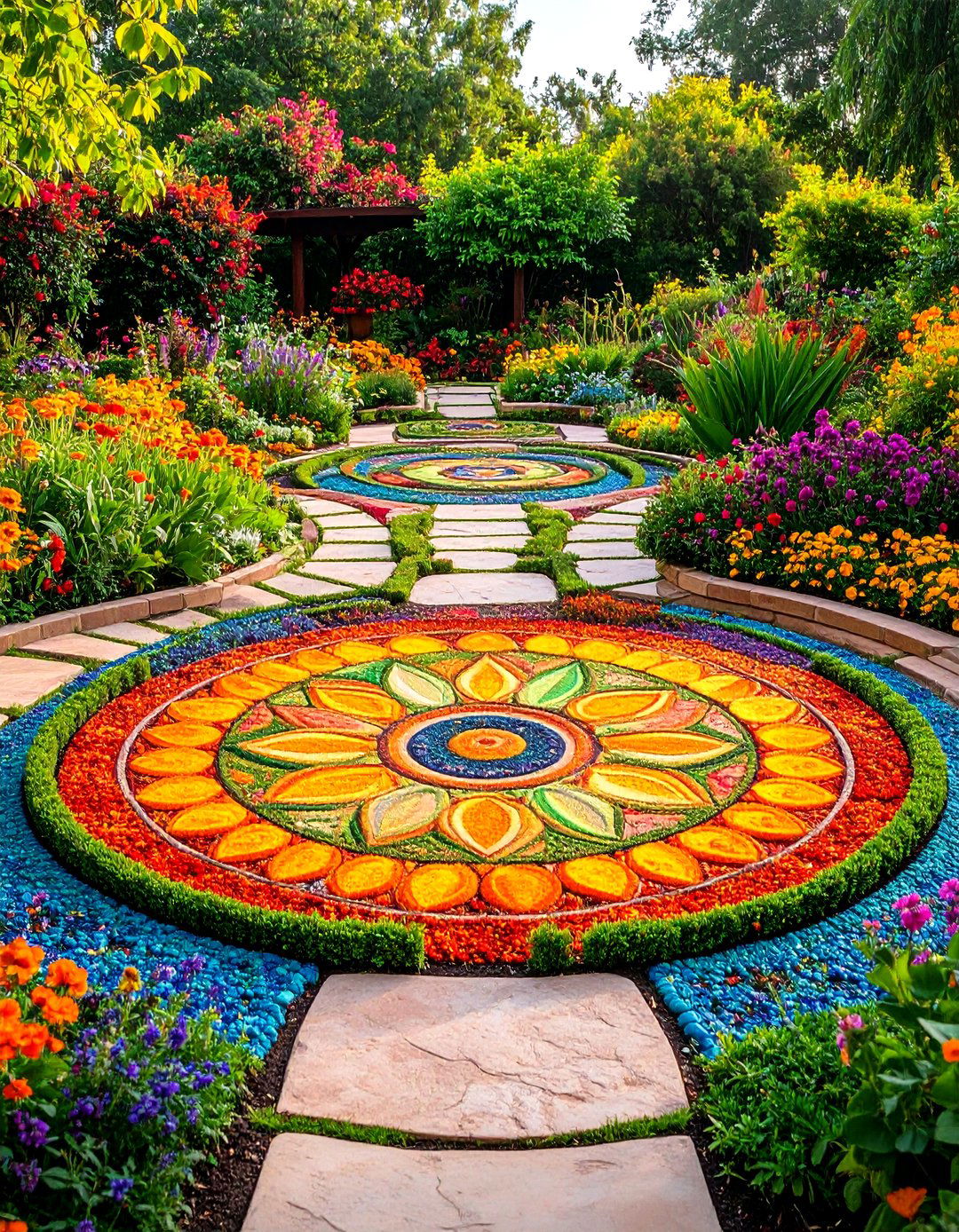
The mandala garden concept connects multiple circular beds in geometric arrangements that create flowing patterns throughout the landscape. A central circular bed is surrounded by smaller satellite circles, all connected by curved pathways that encourage garden exploration and meditation. Each circle can feature different plant themes - herbs, vegetables, flowers, or specialty collections - while maintaining design unity through repetition of materials and forms. Stone, brick, or timber construction options allow customization to suit various budgets and aesthetic preferences. The symmetrical layout creates visual balance while maximizing growing space and minimizing pathway area. This design transforms ordinary garden beds into artistic landscape features that serve both practical growing needs and contemplative garden experiences.
9. Pollinator Circle Garden with Native Butterfly Plants

A dedicated pollinator circle focuses on native flowering plants arranged to provide season-long nectar and pollen sources for butterflies, bees, and beneficial insects. The circular design creates a concentrated pollinator habitat that becomes a living ecosystem supporting local wildlife populations. Plant selection emphasizes native species adapted to local climate conditions, ensuring minimal maintenance requirements while maximizing ecological benefits. Heights are arranged with taller plants like joe-pye weed and purple coneflower in the center, transitioning to shorter plants like wild bergamot and native asters around the perimeter. The round shape eliminates corners where weeds typically establish, while dense plantings naturally suppress unwanted vegetation. This design serves both conservation goals and creates spectacular seasonal flower displays.
10. Zen Meditation Circle with Raked Gravel Patterns
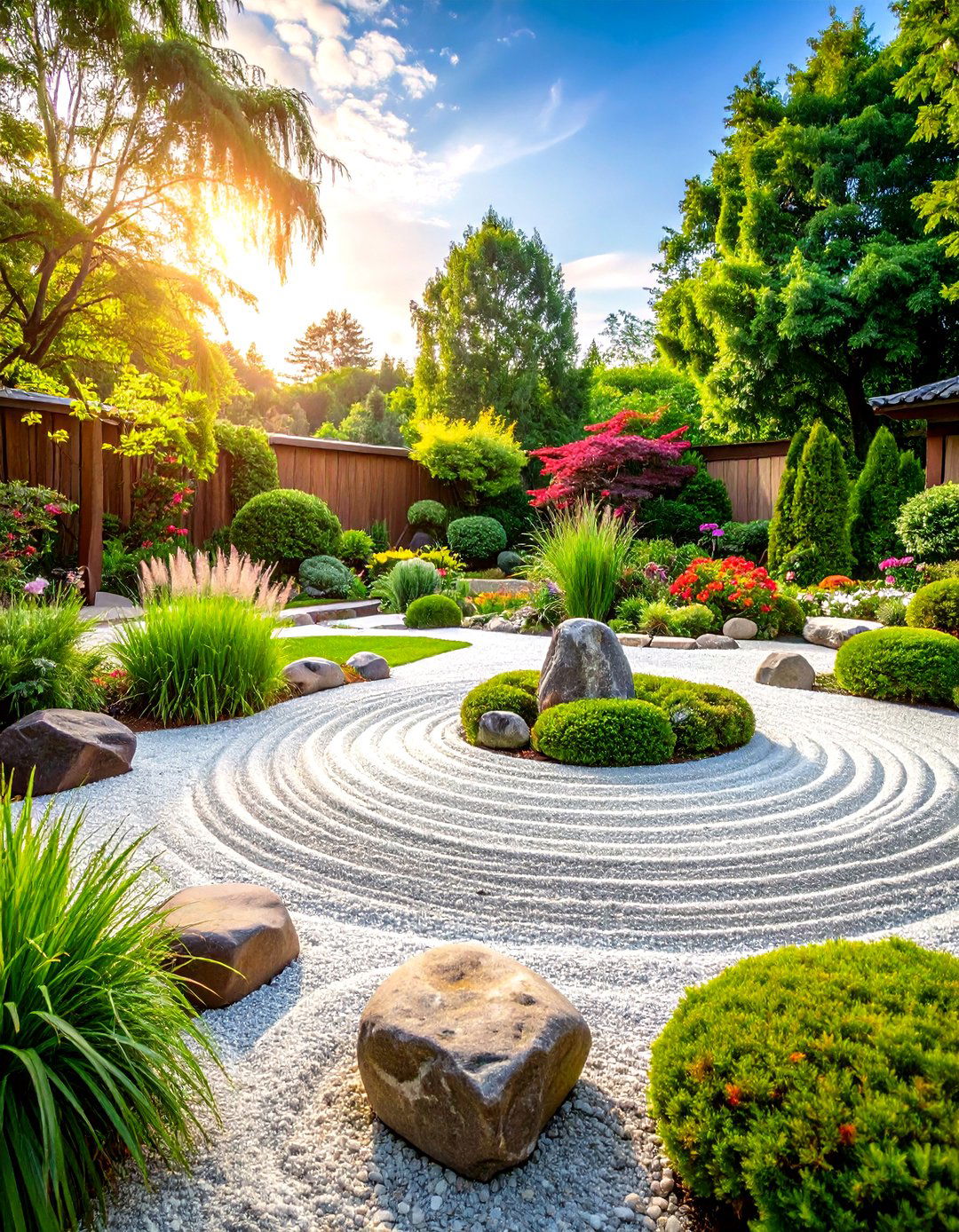
A zen-inspired circular design combines minimal plantings with raked gravel patterns to create peaceful meditation spaces. The outer ring features drought-tolerant plants like ornamental grasses, sedums, or dwarf conifers, while the inner circle contains fine gravel or sand raked into contemplative patterns. Natural stone placement creates focal points representing mountains or islands in the metaphorical sea of gravel. The design emphasizes simplicity, balance, and natural materials that weather gracefully over time. Maintenance involves regular raking to refresh gravel patterns and seasonal pruning of plantings to maintain clean lines. This style works particularly well in small urban spaces where tranquil garden rooms provide refuge from busy city life.
11. Raised Circular Strawberry Bed with Tiered Planting System
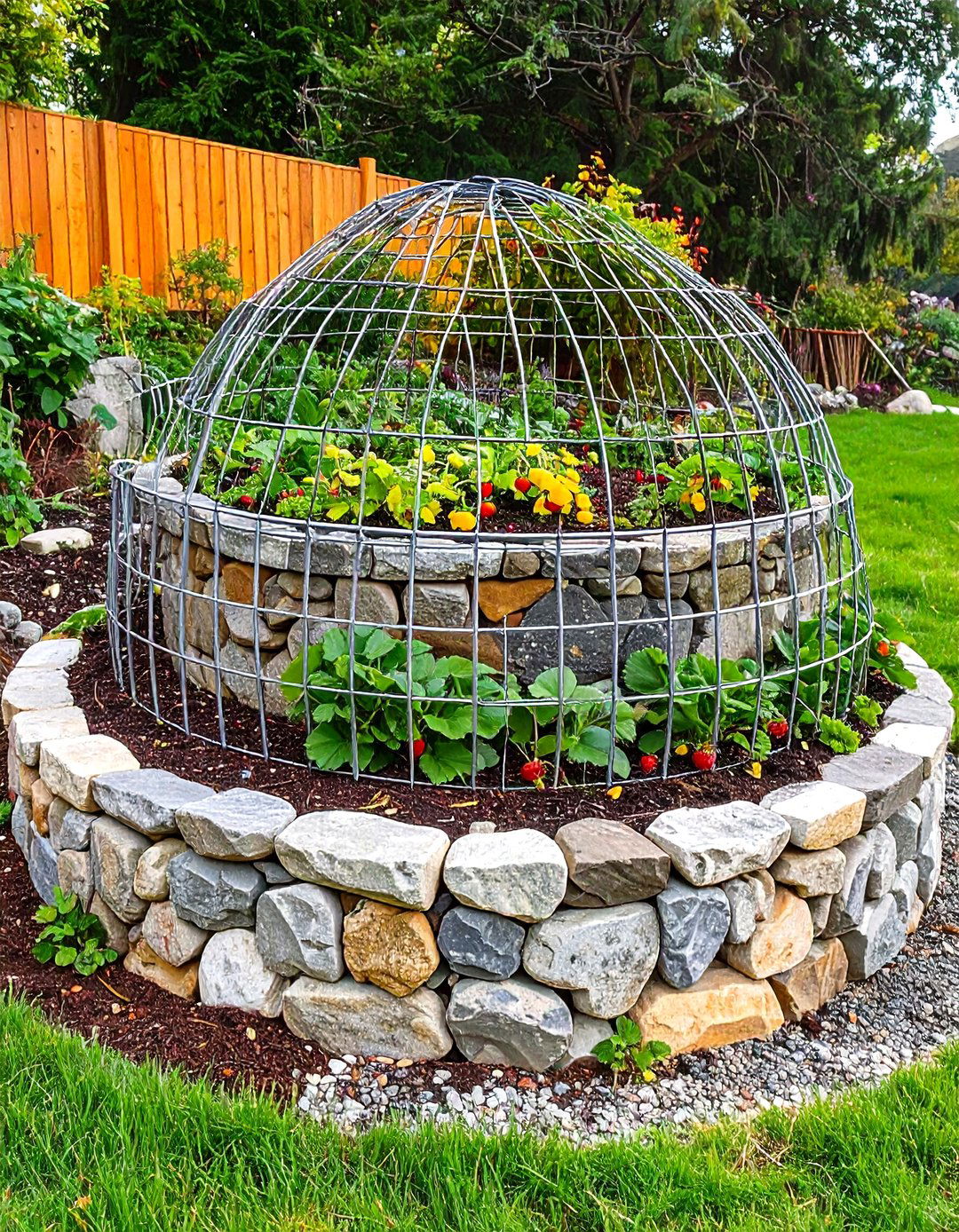
A specialized strawberry circle utilizes tiered construction to maximize fruit production within a compact circular footprint. Multiple planting levels created with stepped retaining walls allow strawberry plants to cascade naturally while improving air circulation and sun exposure for all plants. The circular design provides easy access for harvesting from all sides while accommodinating both June-bearing and everbearing strawberry varieties. Proper drainage prevents crown rot while raised construction protects fruit from soil contact and slugs. Wire or netting covers can be easily installed over the circular frame for bird protection during fruiting season. This intensive growing system can produce significant strawberry harvests from minimal garden space while creating an attractive edible landscape feature.
12. Circular Rock Garden with Alpine Plant Collection
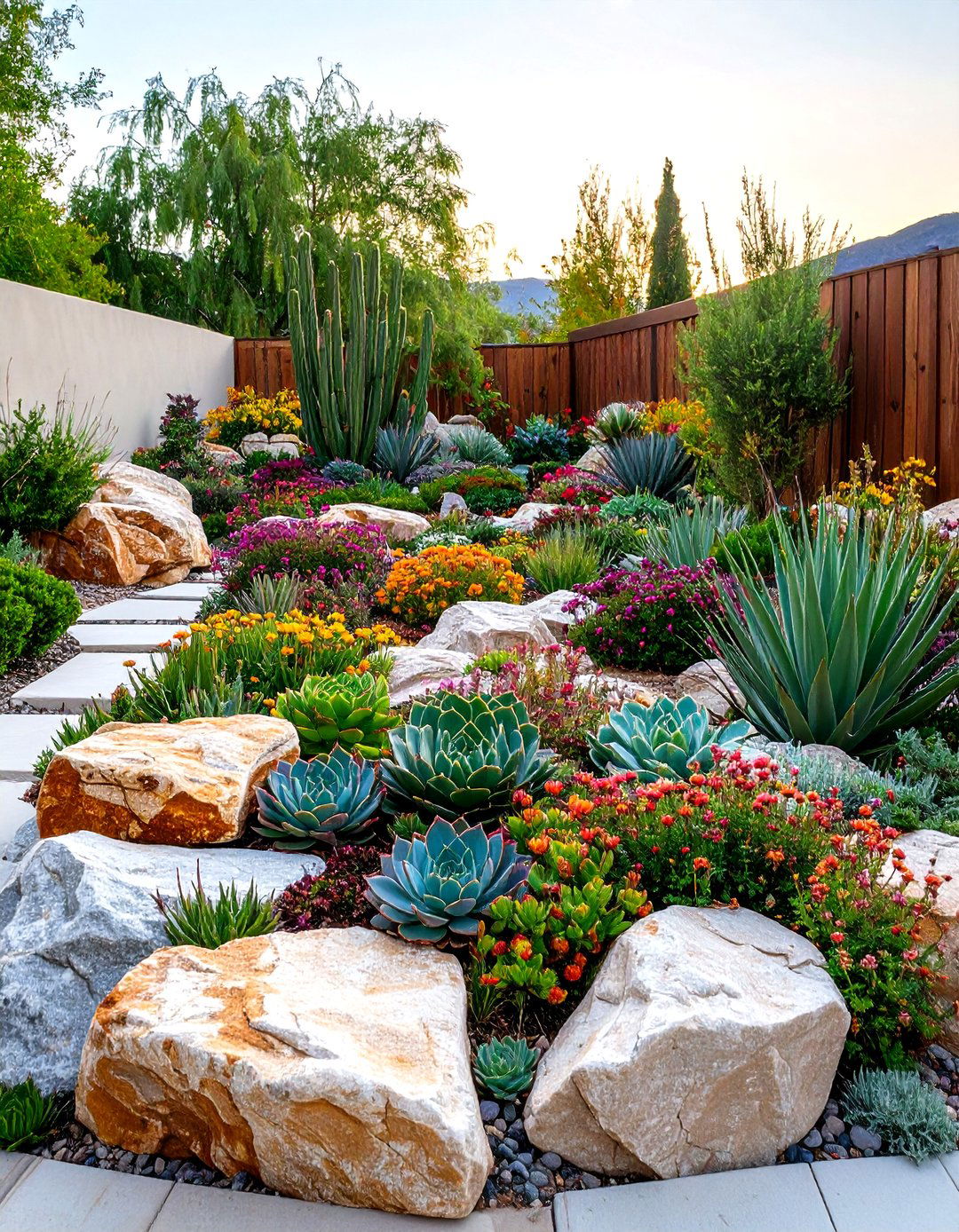
Alpine and rockery plants thrive in circular rock gardens that replicate mountainous growing conditions through excellent drainage and microclimate creation. Large boulders anchor the design while smaller stones create planting pockets filled with gravelly, well-draining soil mix. The circular arrangement allows for gradual height transitions from center to edge, accommodating plants with varying sun and moisture requirements. Sedums, sempervivums, alpine phlox, and dwarf conifers create year-round interest through diverse foliage textures and seasonal flowering displays. The rock construction provides thermal mass that moderates temperature extremes while creating shelter from wind and excess moisture. This low-maintenance design suits xerophytic gardens, slope stabilization, or anywhere dramatic textural contrast is desired in the landscape.
13. Circular Rose Garden with Central Fountain Feature
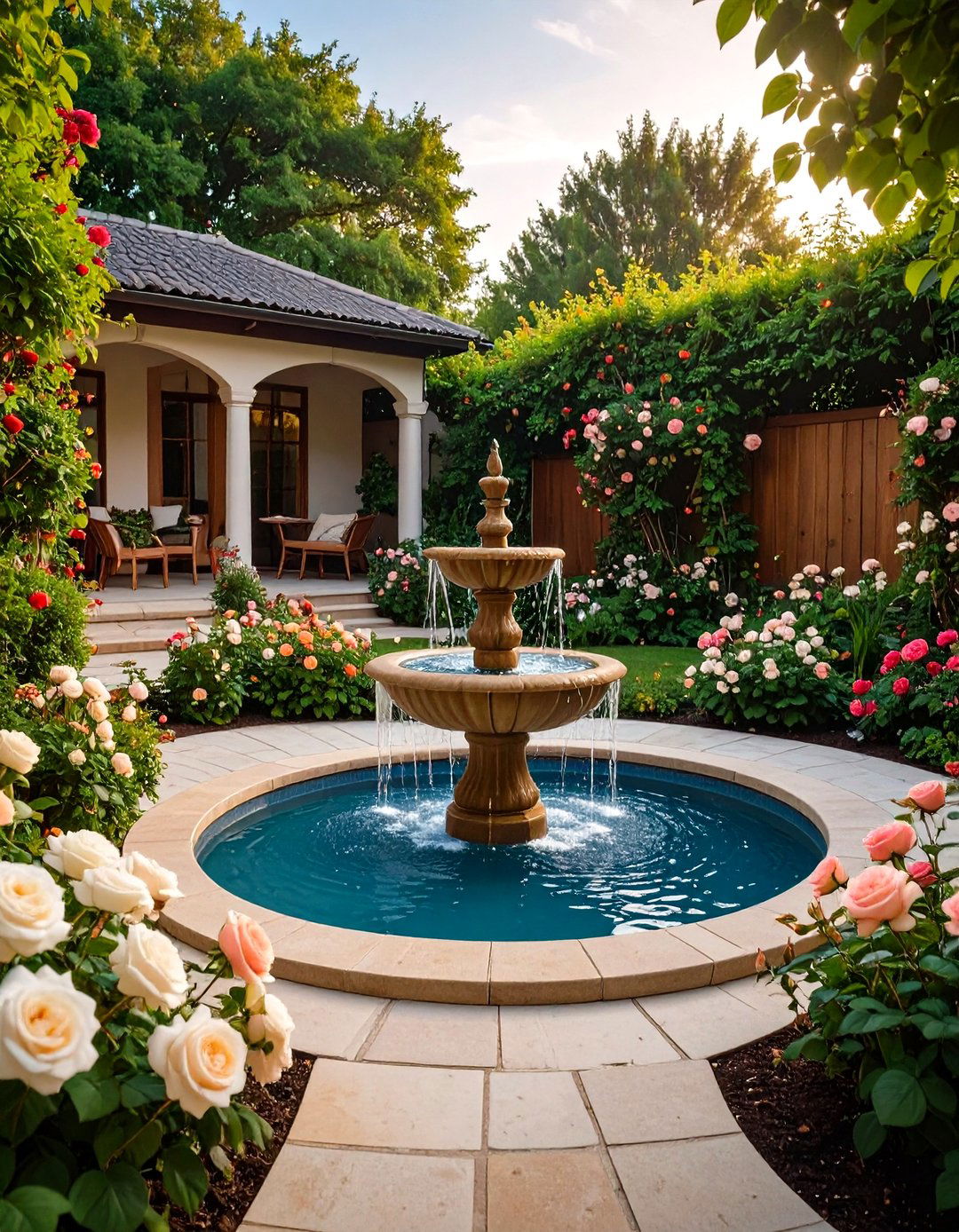
A formal circular rose bed centered around an elegant fountain creates classic garden romance and sophisticated landscape design. The outer ring accommodates hybrid tea roses, floribundas, or shrub roses arranged by color and bloom timing for continuous seasonal display. The central water feature provides moisture, cooling, and soothing sound while serving as a striking focal point visible from multiple garden viewpoints. Brick, stone, or formal edging materials define the circular border and complement fountain materials for design cohesion. Underplanting with lavender, catmint, or ornamental alliums adds fragrance and extends the blooming season while deterring pests naturally. This design works beautifully as a formal garden centerpiece or romantic landscape accent.
14. Circular Cutting Garden with Seasonal Flower Succession
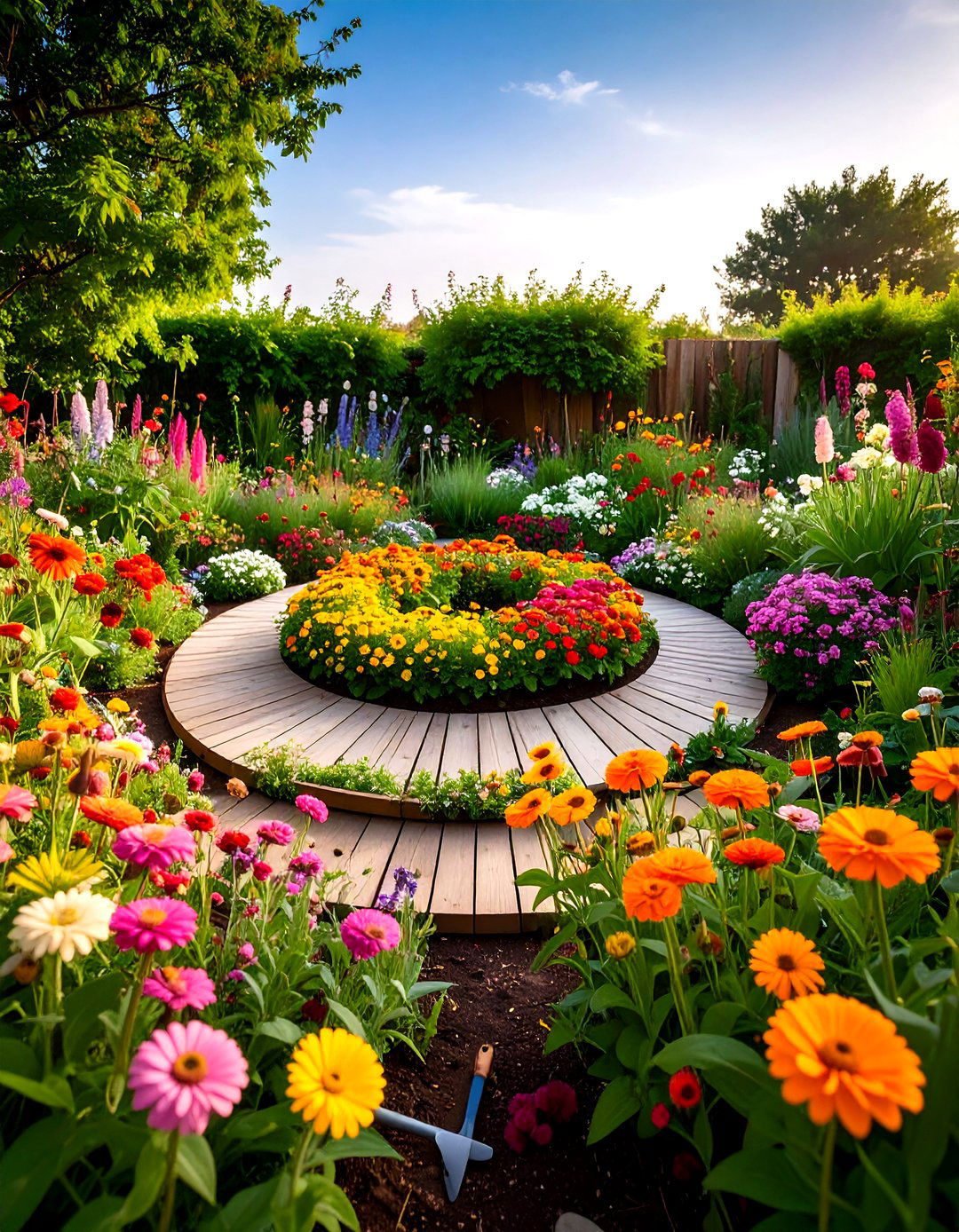
A dedicated cutting garden circle produces abundant flowers for indoor arrangements through carefully planned succession planting and variety selection. The design accommodates both annual and perennial flowers arranged by height, bloom time, and color schemes that provide cutting material throughout the growing season. Cool-season flowers like sweet peas and calendulas occupy outer sections for early harvest, while heat-loving zinnias and sunflowers fill central areas for summer and fall cutting. The circular shape provides efficient access for daily flower harvesting while creating attractive garden displays even when flowers are regularly cut. Rich soil preparation and regular fertilization support continuous flower production, making this design both practical and beautiful.
15. Timber Raised Circle with Integrated Seating Bench

A circular raised bed incorporating a built-in curved bench creates functional garden seating while maximizing growing space efficiency. The timber construction forms both planting bed walls and bench seating in one continuous structure, typically rising eighteen inches for comfortable seating height. The design accommodates herbs, flowers, or vegetables within easy reach while providing rest spots for garden contemplation and maintenance activities. Cedar or other rot-resistant timber ensures longevity while developing attractive weathered patina over time. The integrated seating eliminates need for separate garden furniture while creating intimate garden spaces perfect for small yards or urban settings. This multifunctional design serves both practical and social needs in compact garden environments.
16. Metal Ring Planter with Contemporary Geometric Design
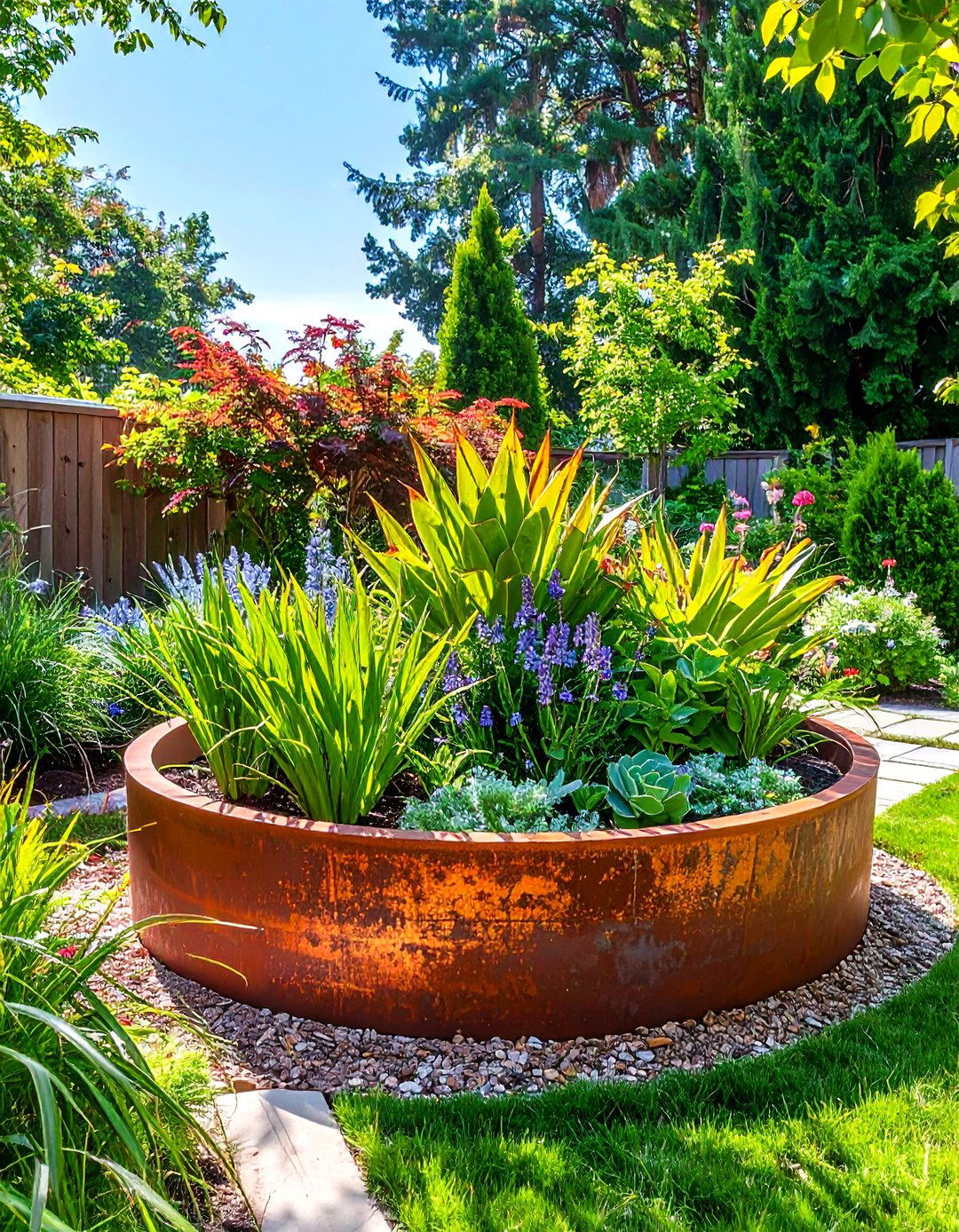
Sleek metal ring planters create bold contemporary statements in modern landscape designs through clean geometric forms and industrial materials. Corten steel develops attractive rust patina that complements modern architecture while providing exceptional durability against weather extremes. The precise circular form creates striking contrast against organic plant shapes while maintaining structural integrity for decades. Various diameters and heights can be combined for dynamic groupings that create visual rhythm throughout contemporary gardens. The metal construction reflects and conducts heat, benefiting warm-season vegetables and heat-loving ornamental plants. This design style works particularly well in urban settings, rooftop gardens, or as accent features in minimalist landscape compositions where architectural elements take precedence over naturalistic forms.
17. Circular Herb Garden with Medicinal Plant Collection

A dedicated medicinal herb circle creates organized growing space for traditional healing plants while providing educational opportunities and personal wellness resources. Plants are arranged by traditional use categories - digestive herbs, respiratory support plants, topical healing species, and general wellness herbs - creating logical harvesting and identification systems. The circular design accommodates varying plant sizes from low-growing chamomile to taller echinacea while maintaining easy access for harvesting and processing. Proper plant spacing prevents overcrowding while encouraging beneficial insect habitat that supports natural pest control. This design serves both practical herbal medicine needs and creates fascinating garden displays featuring plants with rich cultural and healing histories.
18. Circular Succulent Garden with Desert Landscape Theme
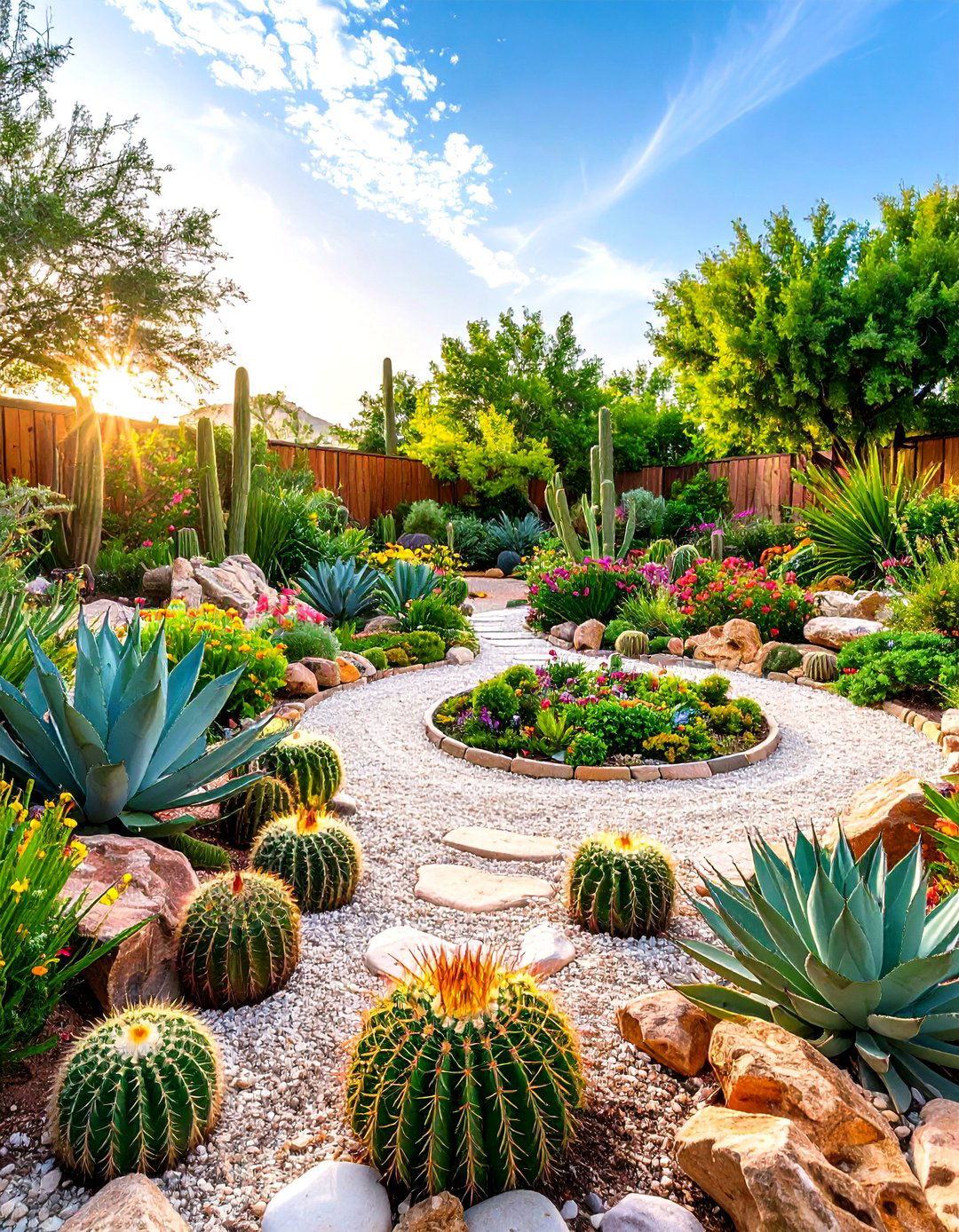
A circular succulent garden creates stunning drought-tolerant displays featuring diverse cacti, sedums, agaves, and other water-wise plants arranged in artistic compositions. The design typically incorporates decorative gravel mulch, interesting rock formations, and varying plant heights that create visual drama without requiring supplemental irrigation. Different succulent forms - rosettes, columnar, trailing, and globular - provide textural variety while maintaining cohesive desert aesthetics. The circular boundary contains specialized succulent soil mix that provides excellent drainage essential for these plants' health and longevity. This low-maintenance design works beautifully in arid climates, xerophytic gardens, or anywhere water conservation is prioritized alongside striking landscape impact.
19. Raised Circular Salad Garden with Intensive Growing System
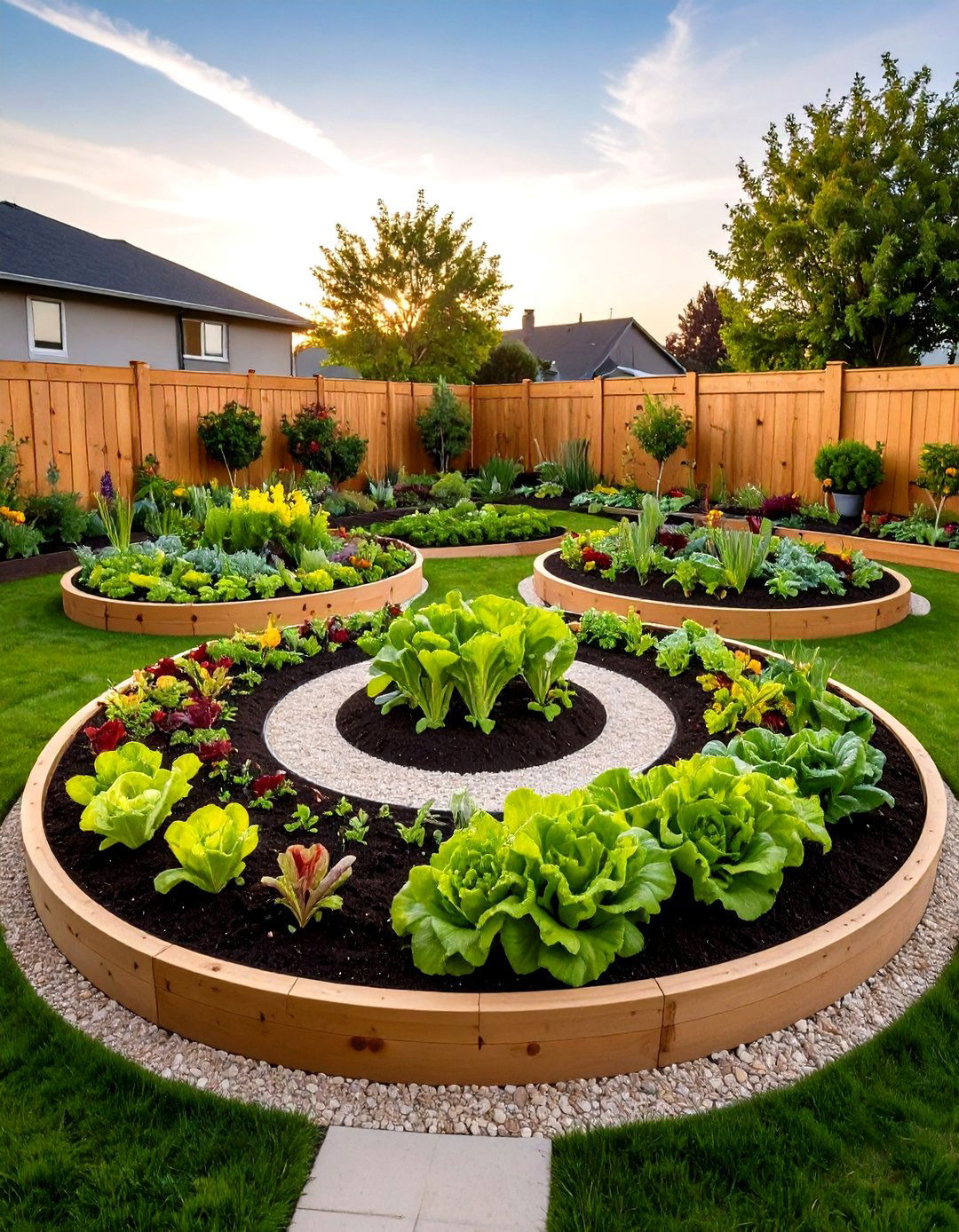
A circular salad garden optimizes fresh produce production through intensive growing methods and succession planting within a compact, easily managed space. The design accommodates lettuce, spinach, arugula, radishes, and other quick-growing crops arranged in concentric rings or sectioned wedges for efficient harvesting and replanting. The raised construction improves soil drainage and warming for extended growing seasons, while the circular shape eliminates corner waste and provides equal sun exposure to all planting areas. Succession planting every two weeks ensures continuous harvest availability throughout the growing season. This design works perfectly for kitchen gardens where daily fresh produce is desired from minimal space investment.
20. Stone Circle Garden with Perennial Border Display

A natural stone circular border creates elegant framework for perennial flower displays that provide years of low-maintenance beauty and seasonal interest. The stone construction offers permanence and thermal mass while complementing diverse perennial plant forms, colors, and textures throughout multiple growing seasons. Plant selection emphasizes long-blooming species like coneflowers, black-eyed susans, and ornamental grasses arranged by height and bloom timing for continuous display. The circular design creates natural plant groupings while providing defined edges that prevent lawn encroachment and maintain neat garden boundaries. This investment in quality stone construction and perennial plants creates garden features that improve with age while requiring minimal annual maintenance.
21. Circular Kitchen Garden with Culinary Herb Spiral

A culinary-focused circular bed combines vegetable production with essential cooking herbs arranged in spiral formation that maximizes growing diversity within compact space. The design places frequently used herbs like basil, oregano, and thyme in easily accessible outer sections while positioning larger plants like tomatoes and peppers in central areas. The spiral arrangement creates microclimates that accommodate plants with varying moisture and sun requirements while maintaining efficient harvesting access. This intensive growing system supports complete meal preparation from fresh garden ingredients while creating attractive edible landscape features. The design works particularly well near kitchen entrances where convenient access encourages regular harvesting and use.
22. Circular Wildlife Habitat Garden with Native Plant Focus

A wildlife-focused circular garden creates concentrated habitat for birds, butterflies, and beneficial insects through strategic native plant selection and natural landscaping techniques. The design incorporates plants that provide food, shelter, and nesting materials throughout the year - berry-producing shrubs, seed-bearing perennials, and nectar-rich flowers arranged in naturalistic compositions. Water features, brush piles, or rock cairns enhance habitat value while maintaining attractive garden aesthetics. The circular boundary contains wildlife-friendly plants while preventing aggressive species from spreading into adjacent garden areas. This conservation-minded design supports local ecosystems while creating dynamic, season-long garden displays that change with natural wildlife activity patterns.
23. Raised Circular Potato Growing Bed with Harvest Efficiency

A specialized circular potato bed utilizes raised construction and strategic soil management to maximize tuber production while simplifying harvest processes. The design typically features removable wooden sides that allow gradual soil building as potato plants grow, encouraging maximum tuber development throughout the growing season. The circular shape provides efficient space utilization while allowing easy access for hilling soil and eventual harvesting from all sides. Different potato varieties can be grown in sectioned areas to provide diverse cooking options and harvest timing. This intensive growing method produces significant potato yields from minimal garden space while creating organized, attractive vegetable garden features.
24. Circular Moon Garden with Night-Blooming Plants
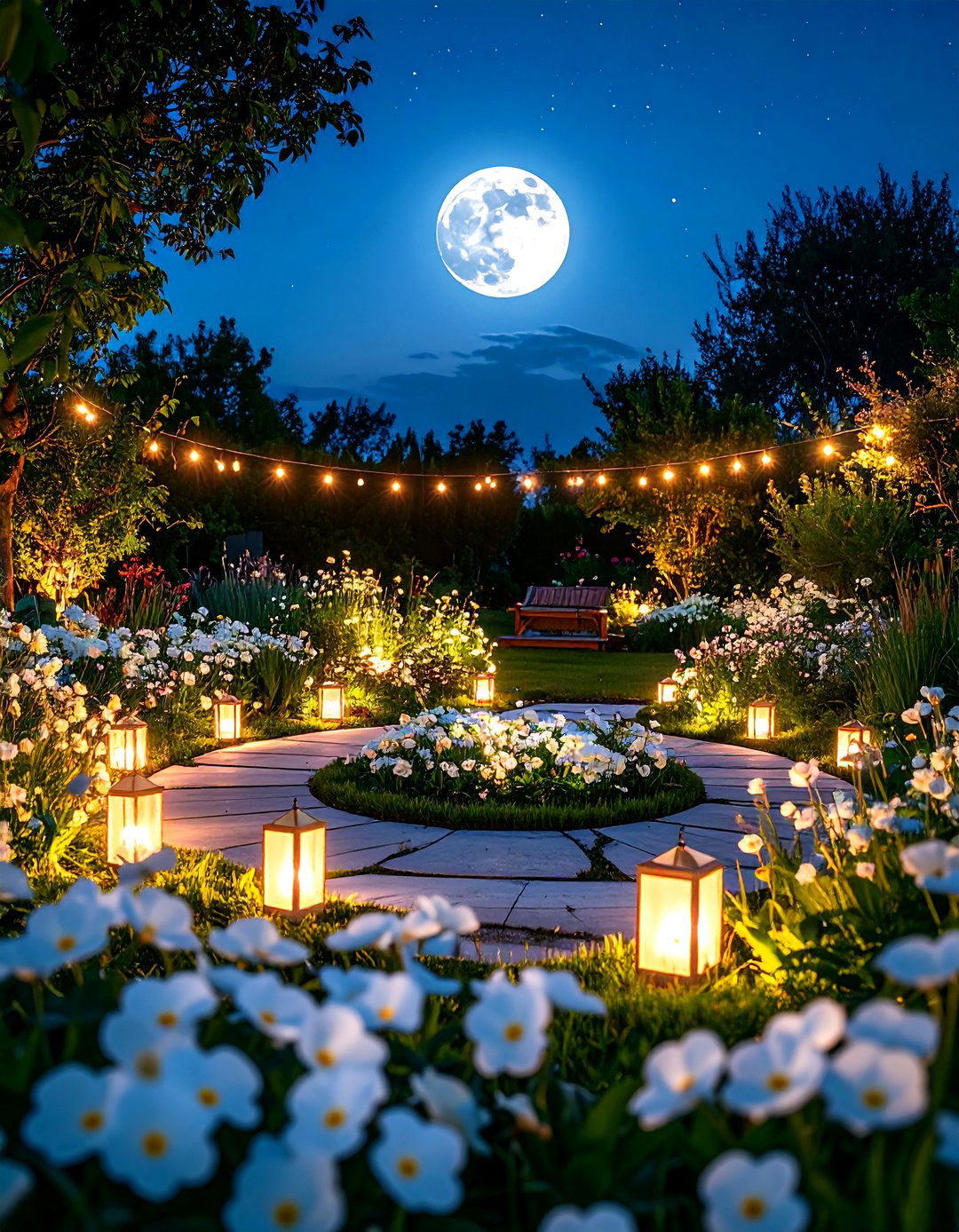
A moon garden circle features white and pale-colored flowers that glow in evening light, creating magical nighttime garden experiences through carefully selected night-blooming and light-reflecting plants. Evening primrose, four o'clocks, moonflowers, and white nicotiana provide fragrant nighttime blooms, while silvery artemisia and dusty miller add reflective foliage that captures moonlight and artificial illumination. The circular design creates intimate evening gathering spaces while concentrating fragrant plants for maximum sensory impact. Strategic lighting enhances the white flower display while providing safety and ambiance for evening garden enjoyment. This specialized design transforms ordinary garden spaces into enchanting nighttime retreats perfect for evening entertaining or peaceful contemplation.
Conclusion:
Round garden beds offer exceptional versatility for creating productive, beautiful, and functional landscape features that maximize growing potential while minimizing maintenance requirements. From practical herb spirals and vegetable circles to contemplative zen gardens and wildlife habitats, circular designs accommodate diverse gardening goals within compact, efficiently managed spaces. The organic curves eliminate wasted corner areas while creating natural microclimates and improved drainage that benefit plant health and garden productivity. Whether constructed from natural stone, sustainable timber, or modern materials, these circular garden concepts transform ordinary growing spaces into extraordinary landscape features that serve both practical and aesthetic purposes throughout multiple growing seasons.


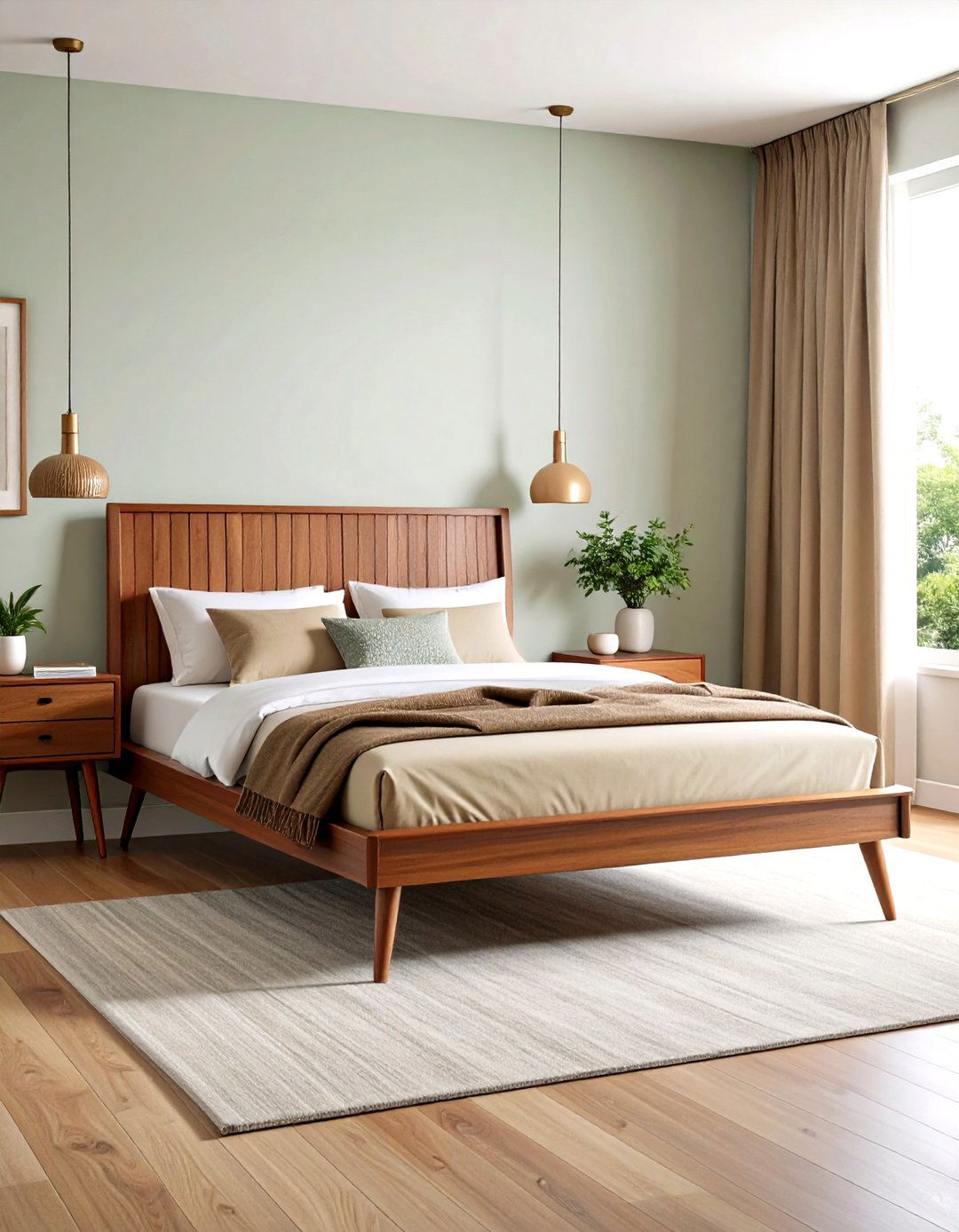
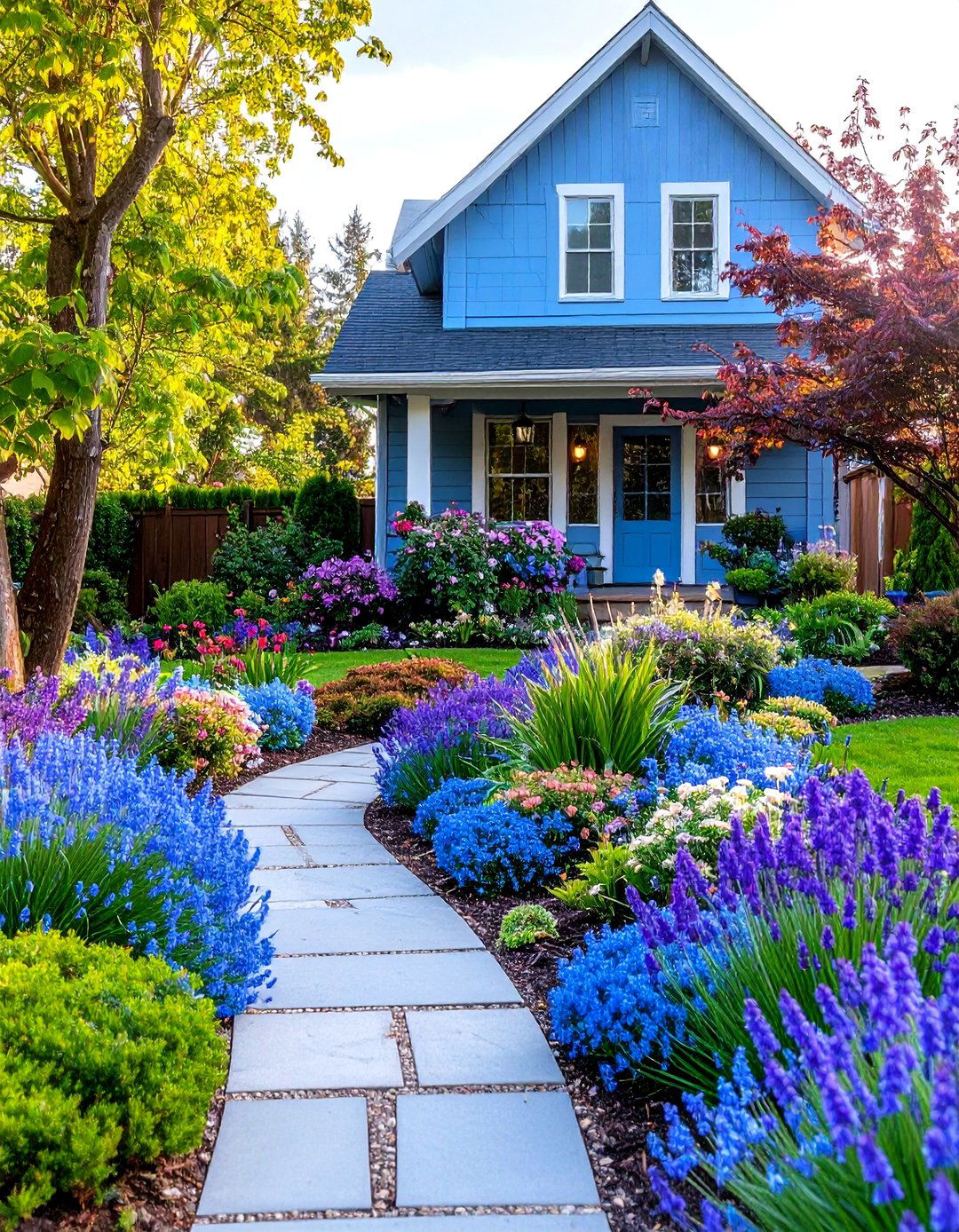
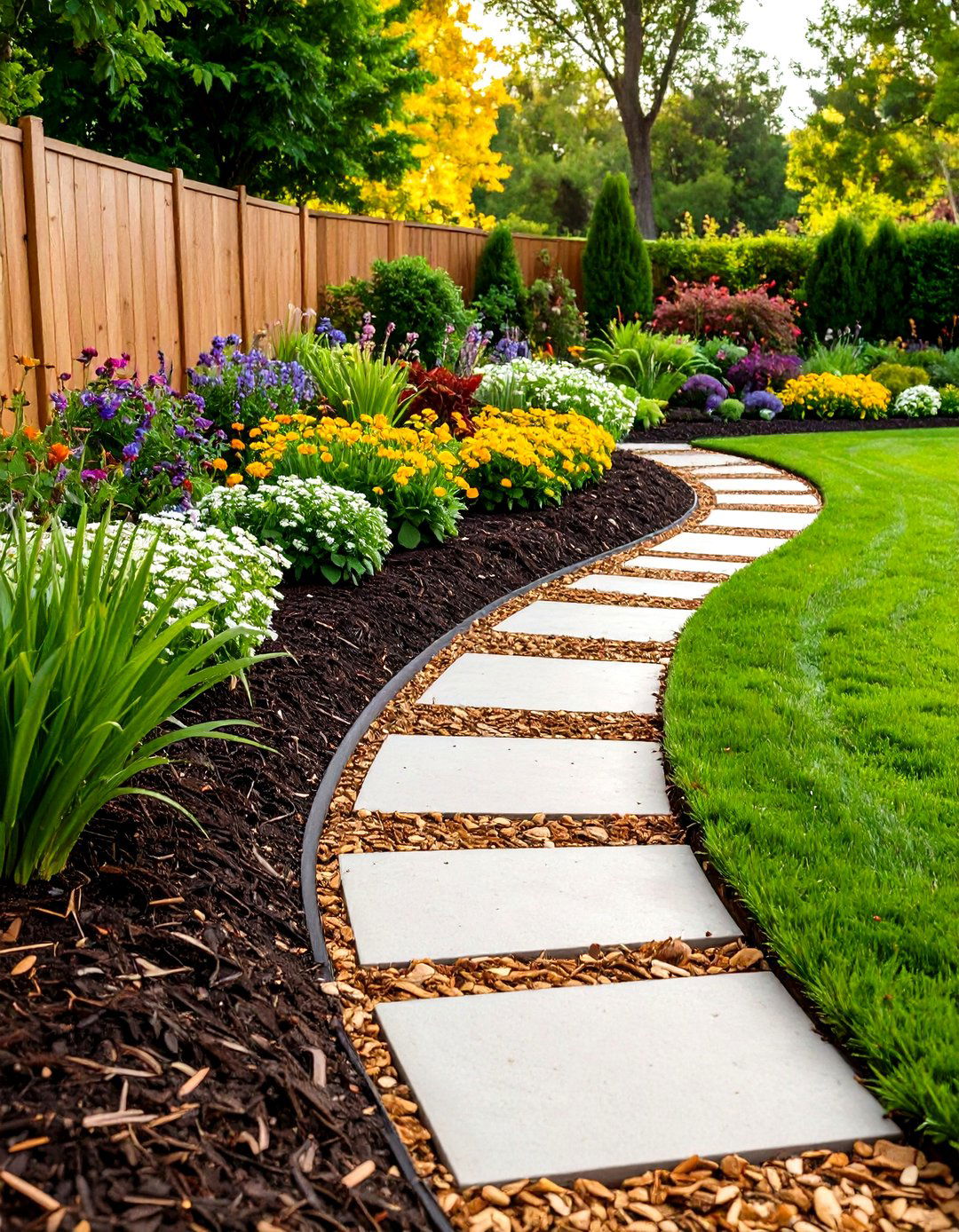
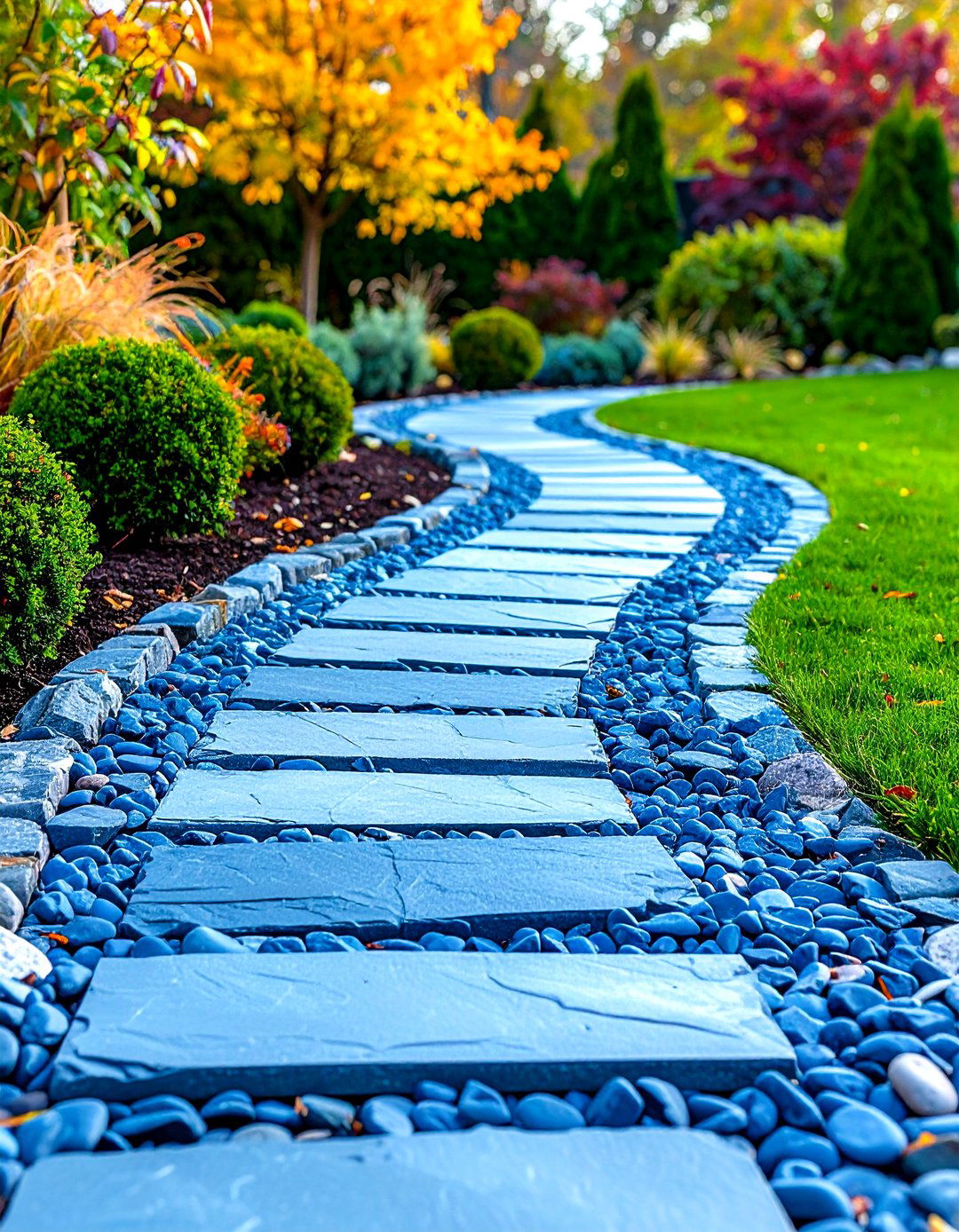
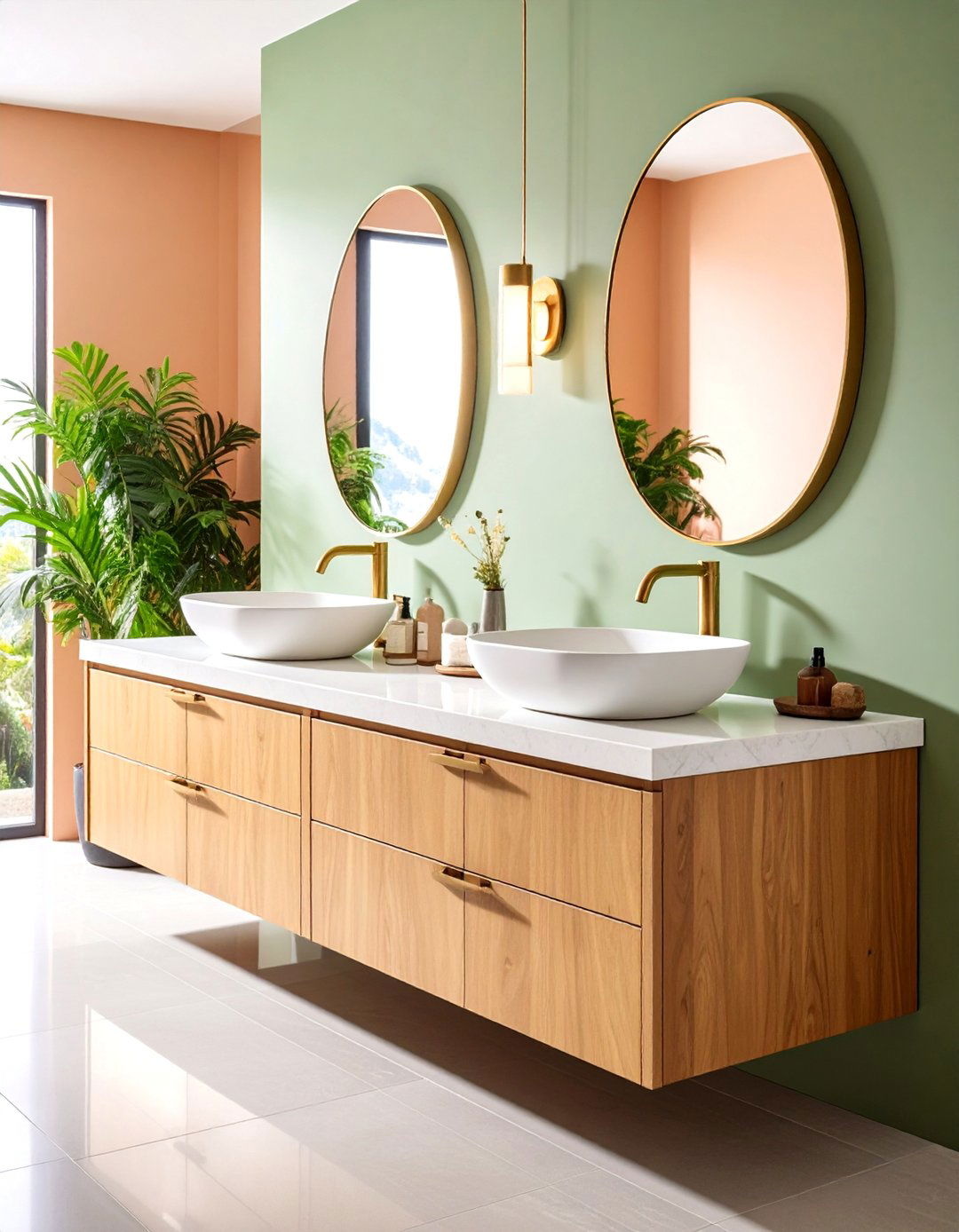

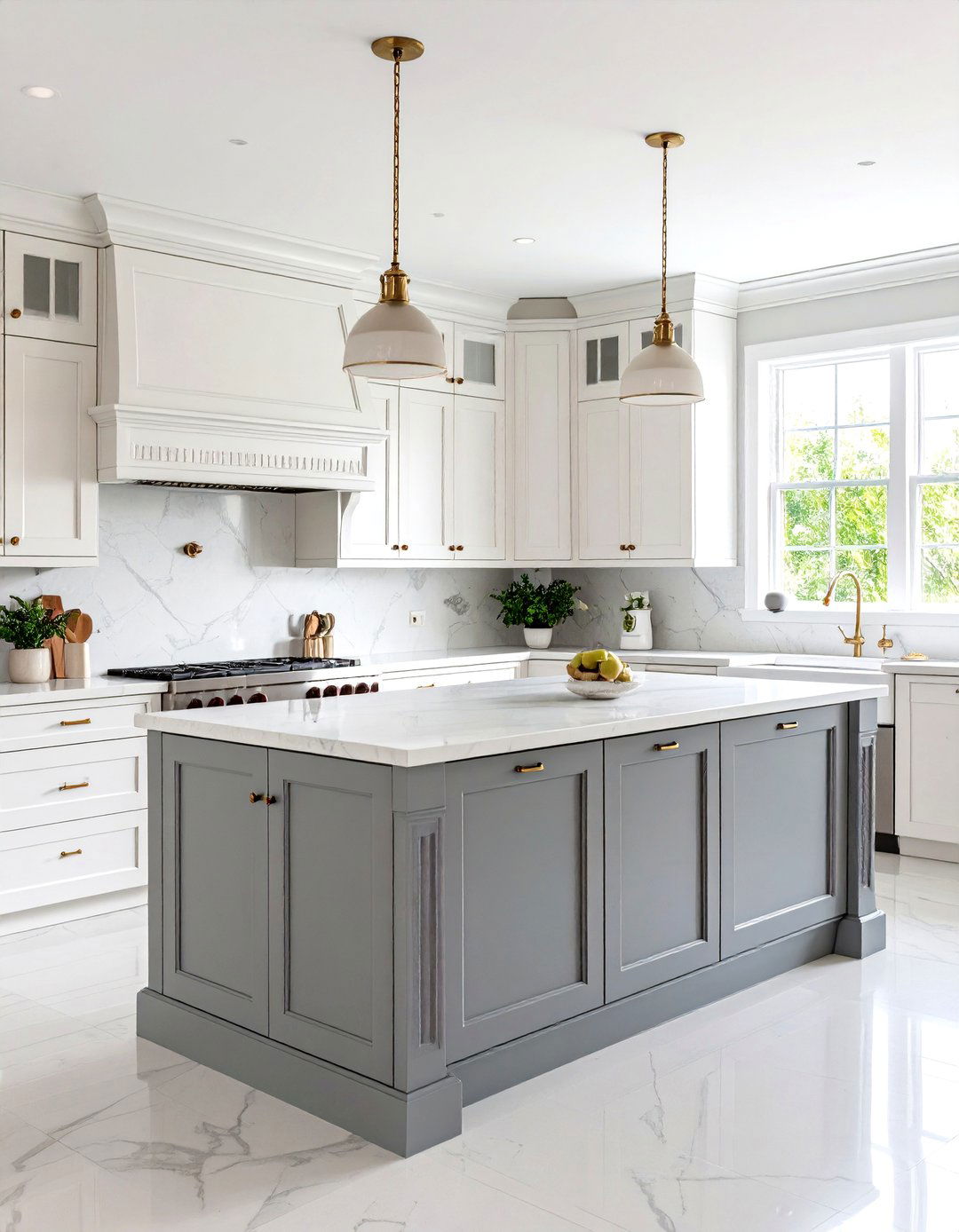
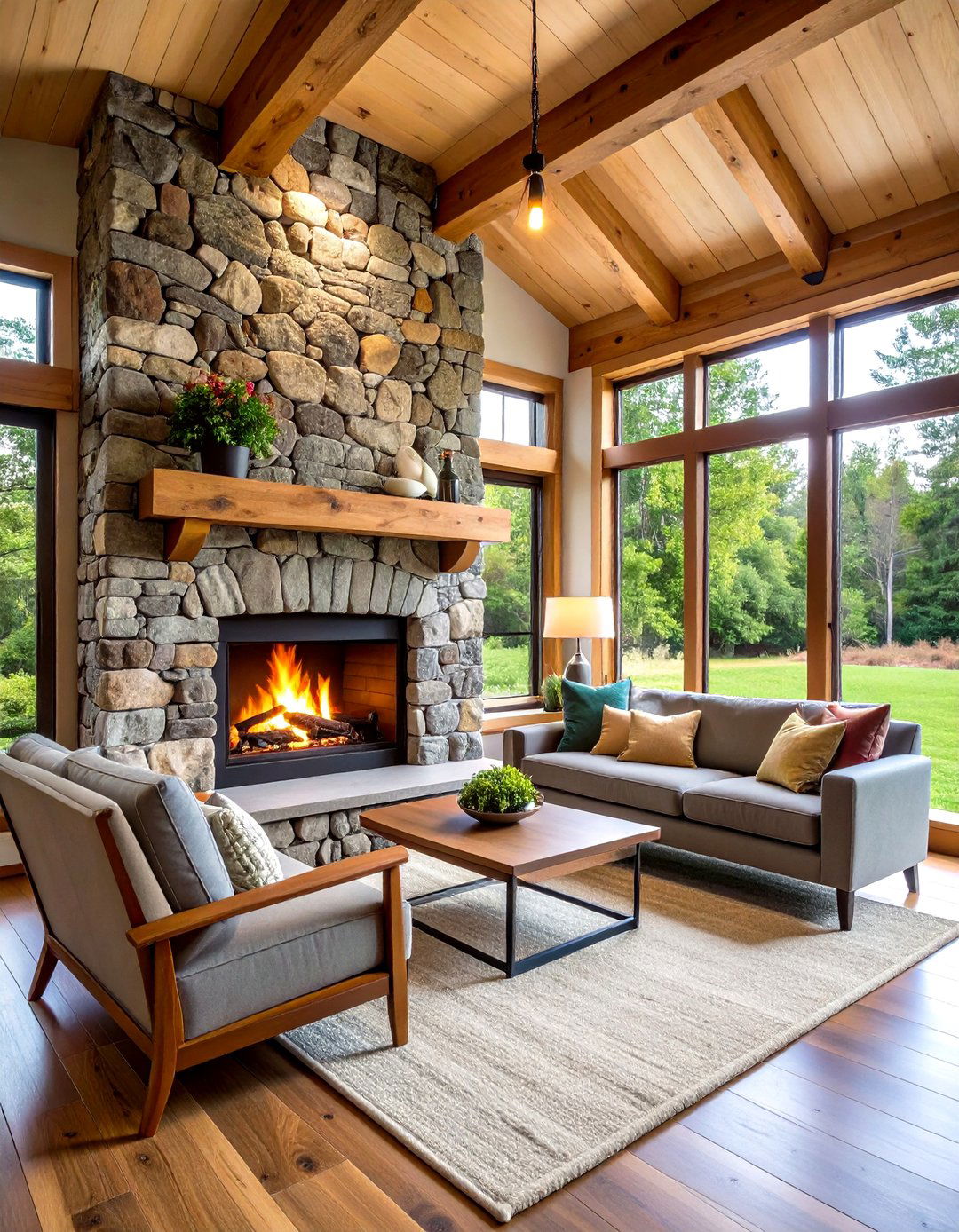
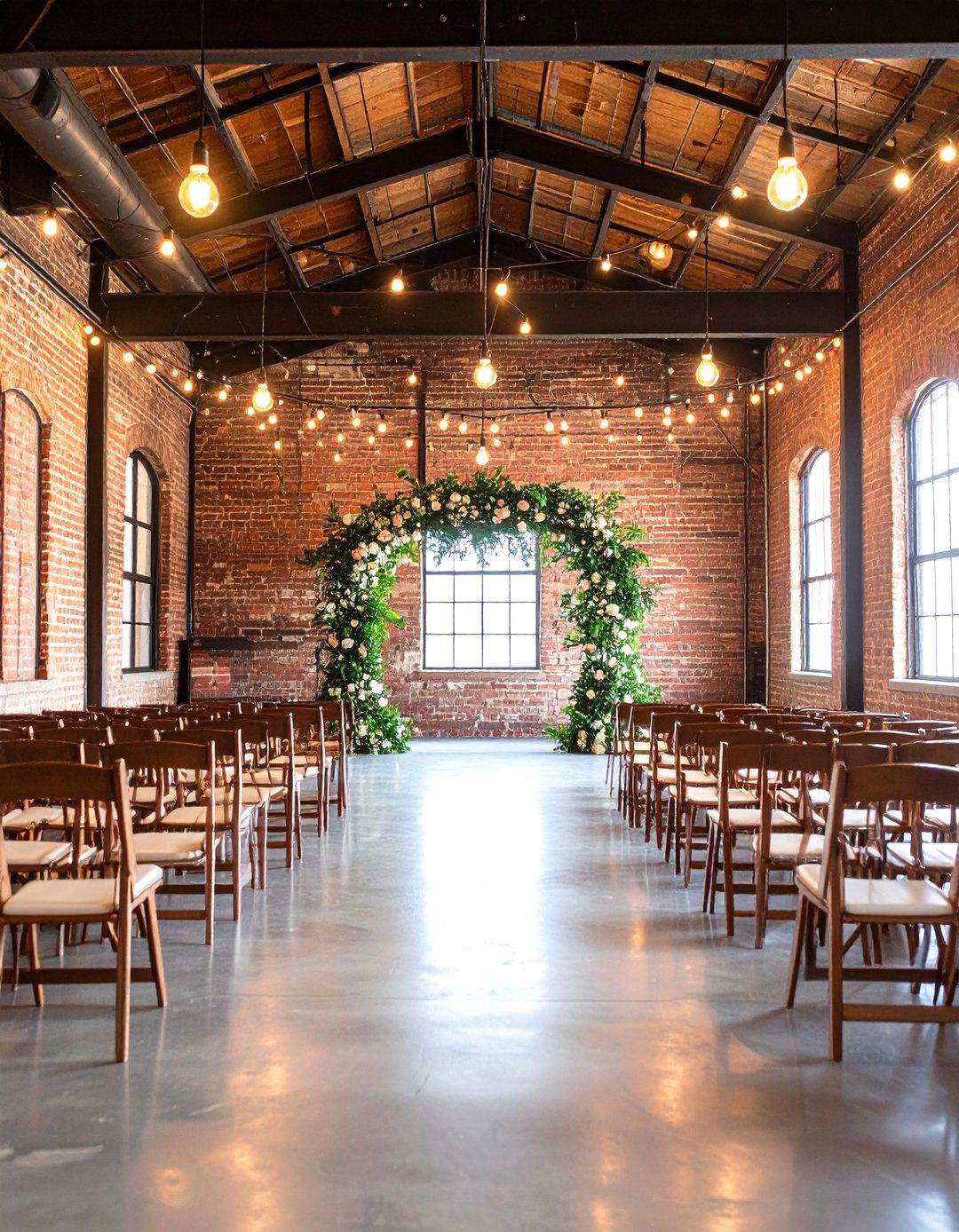
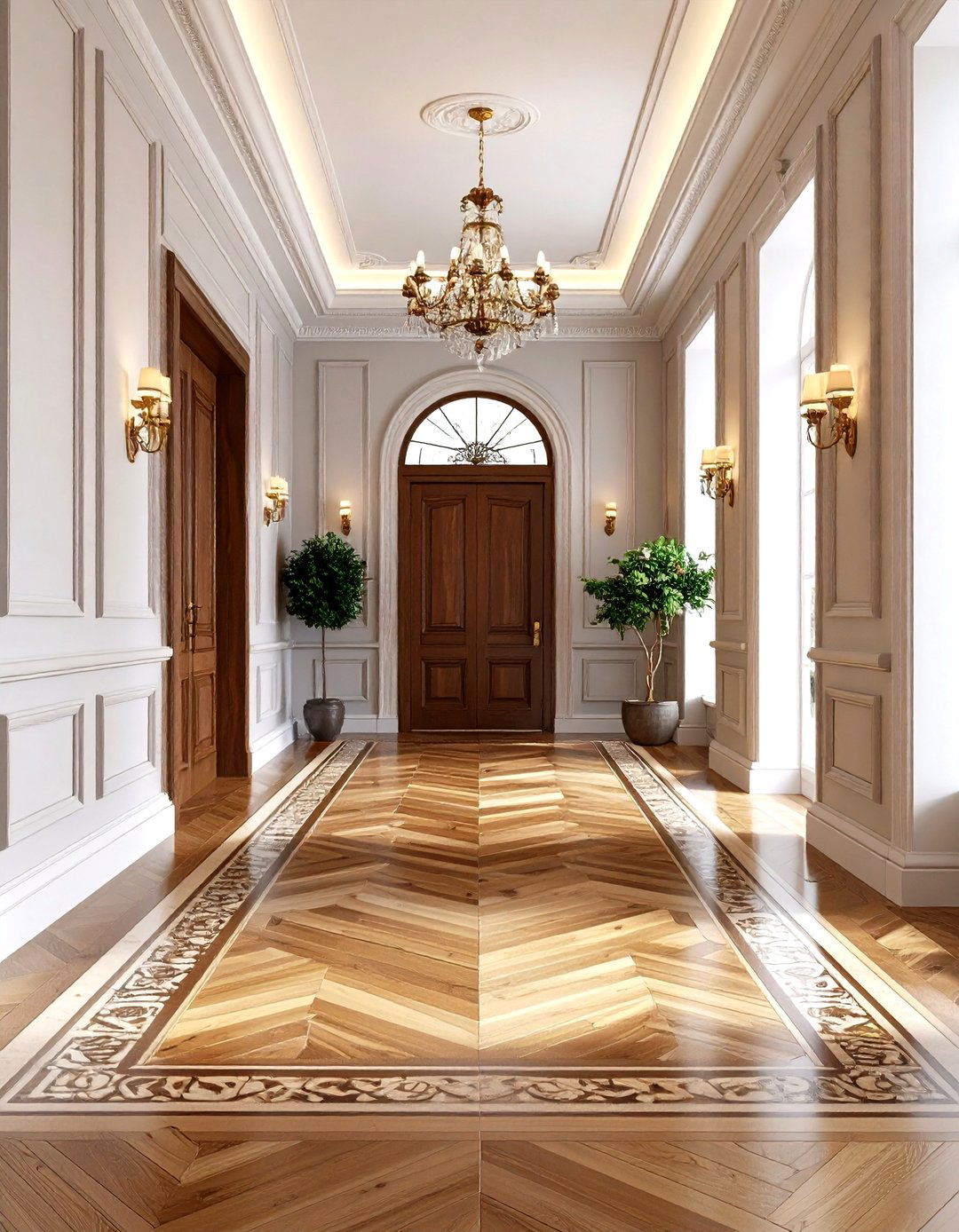
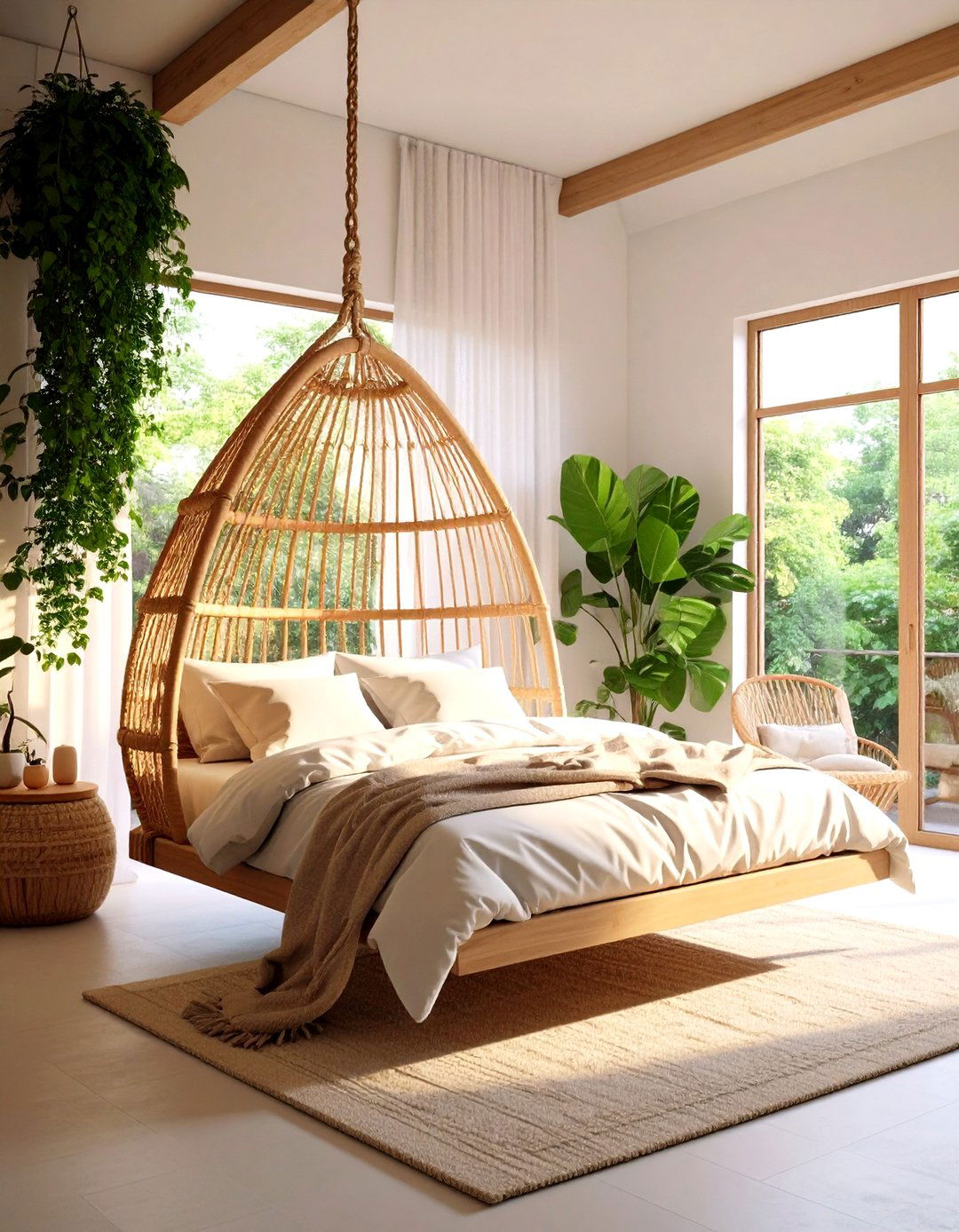
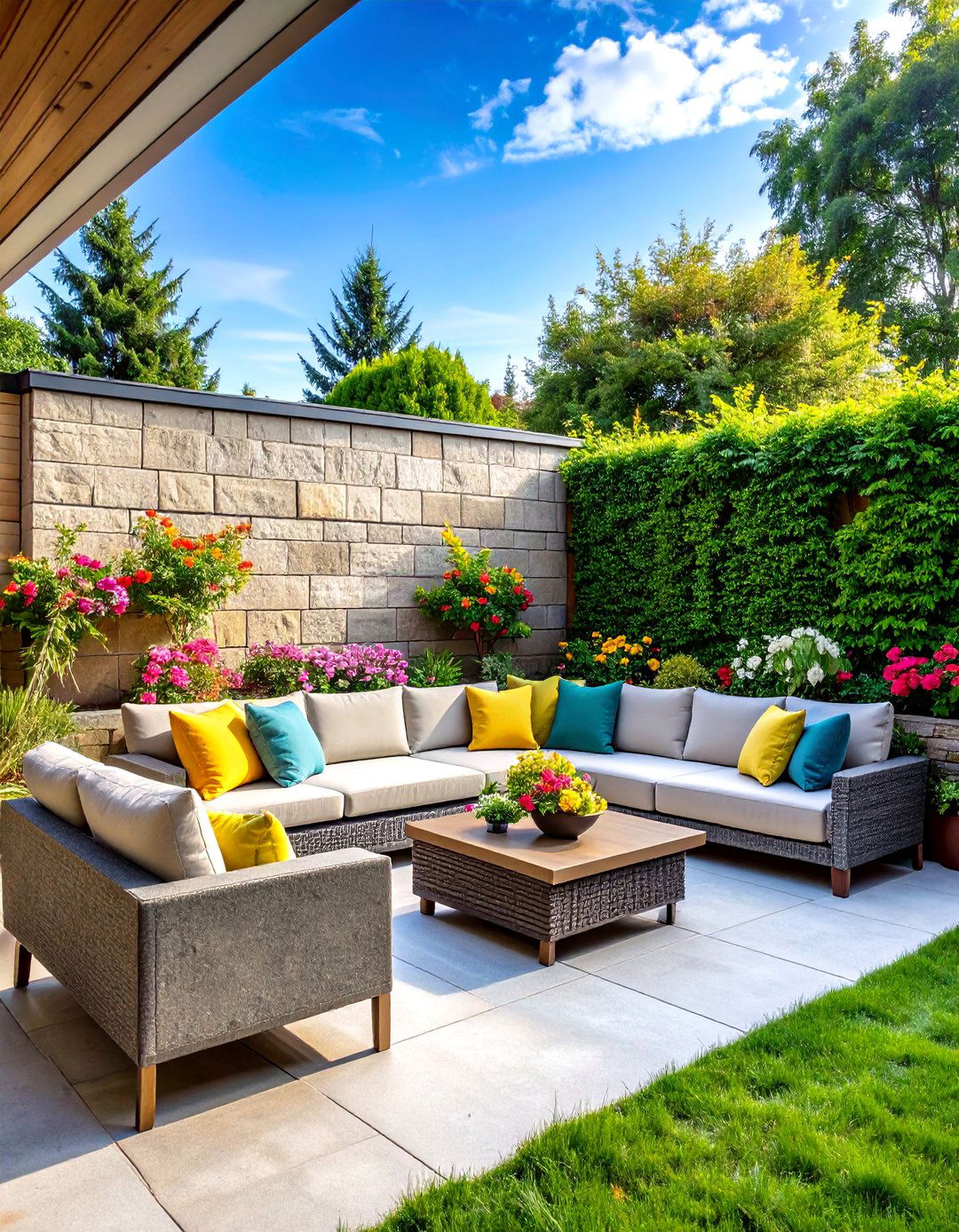


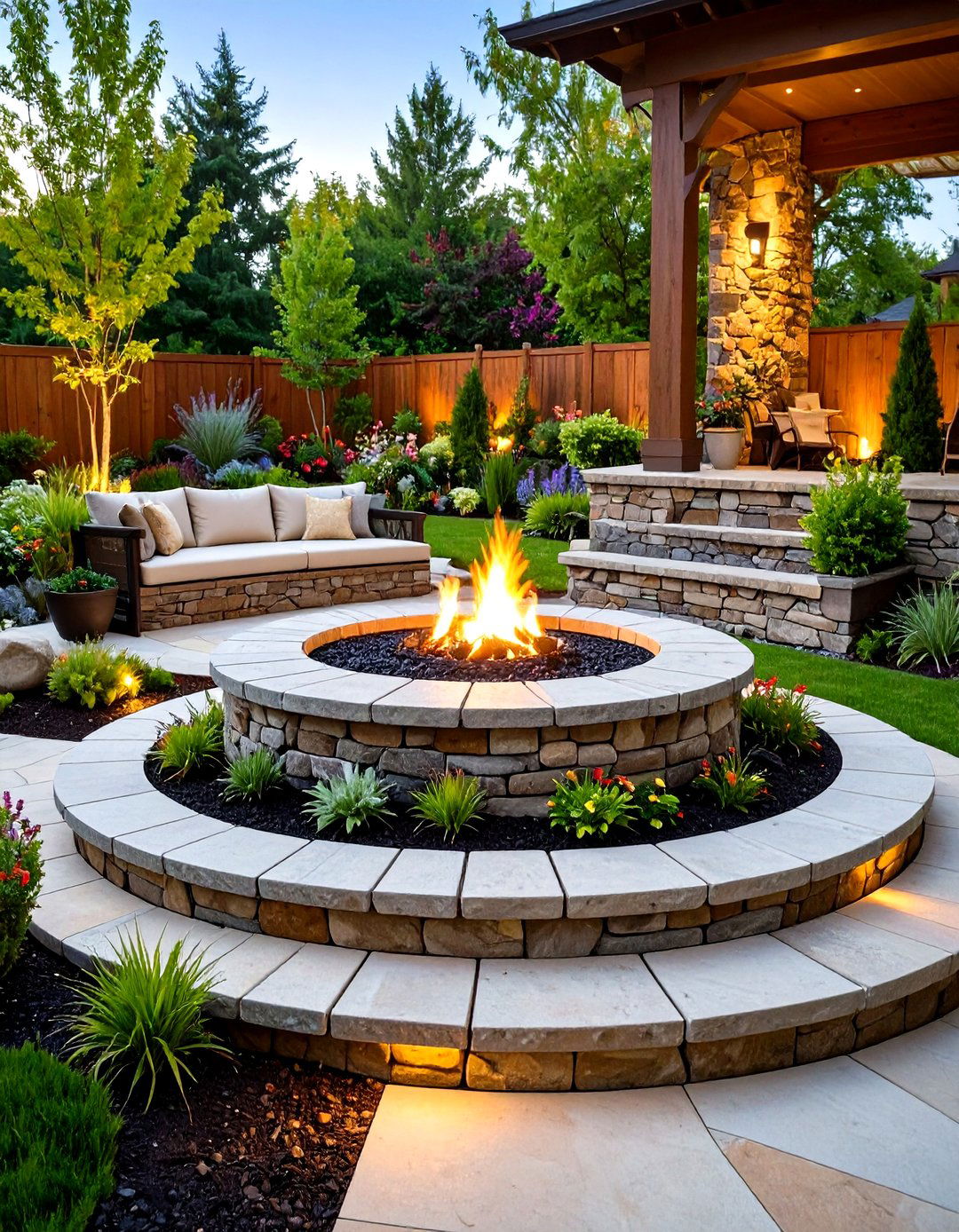


Leave a Reply